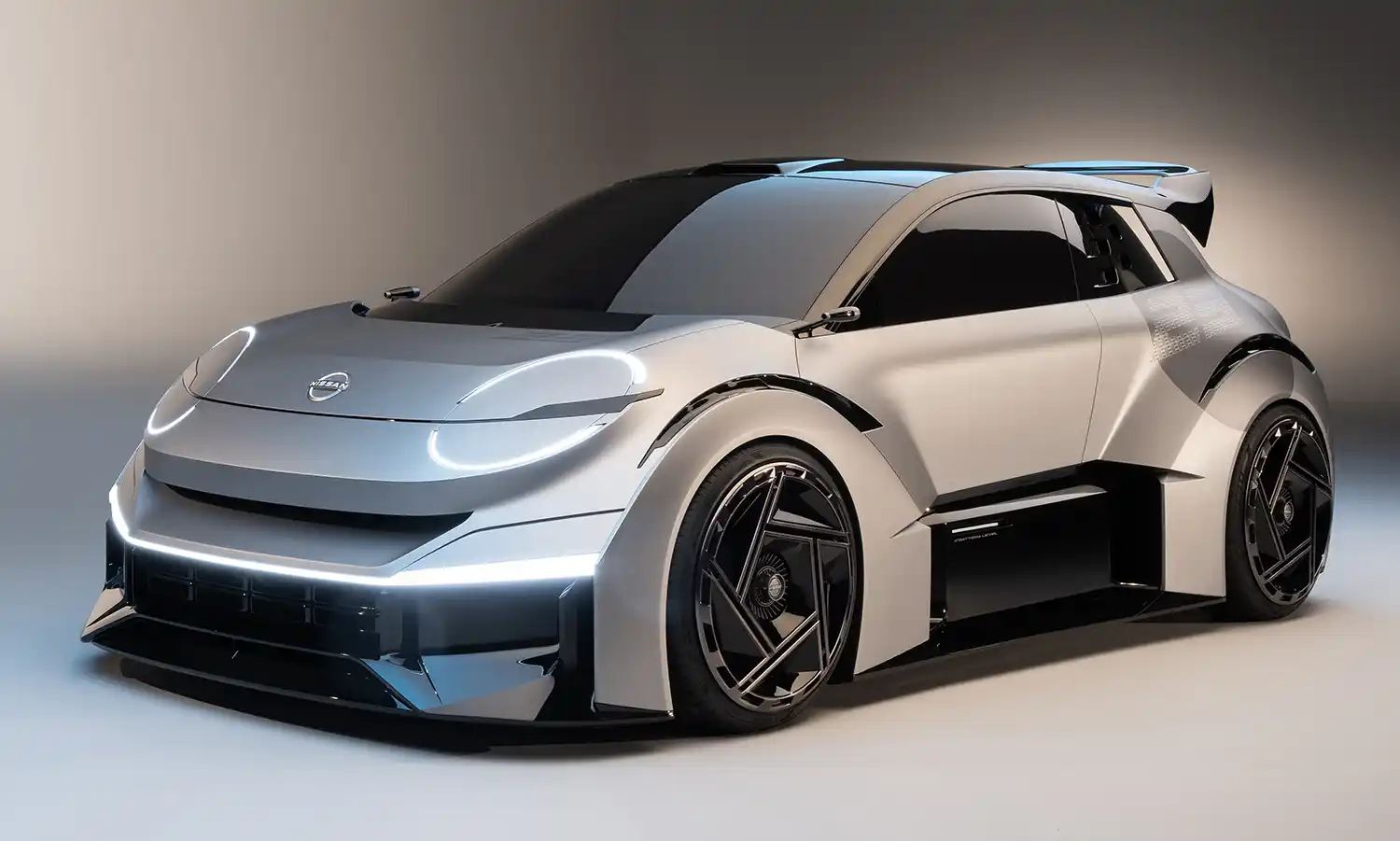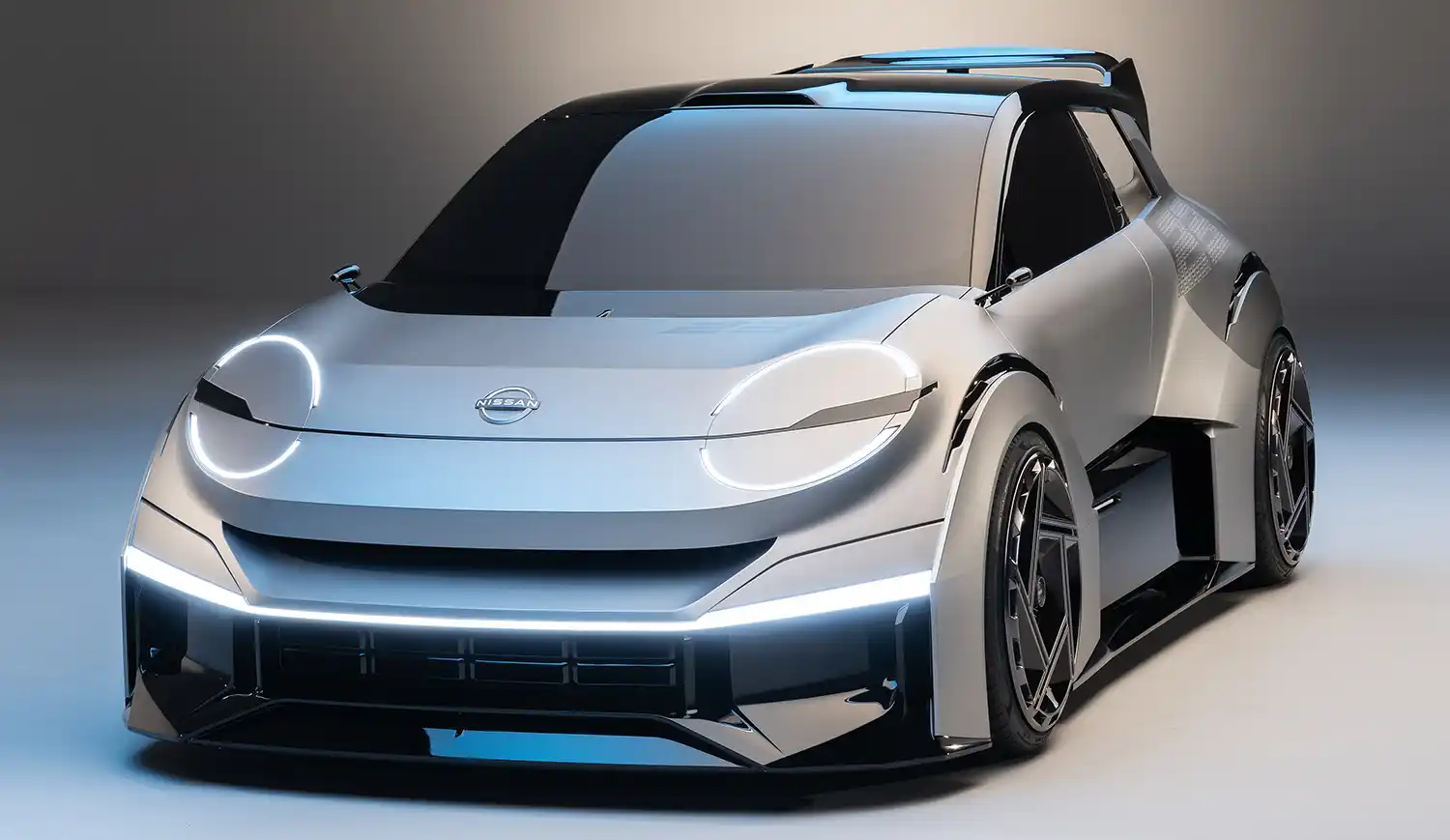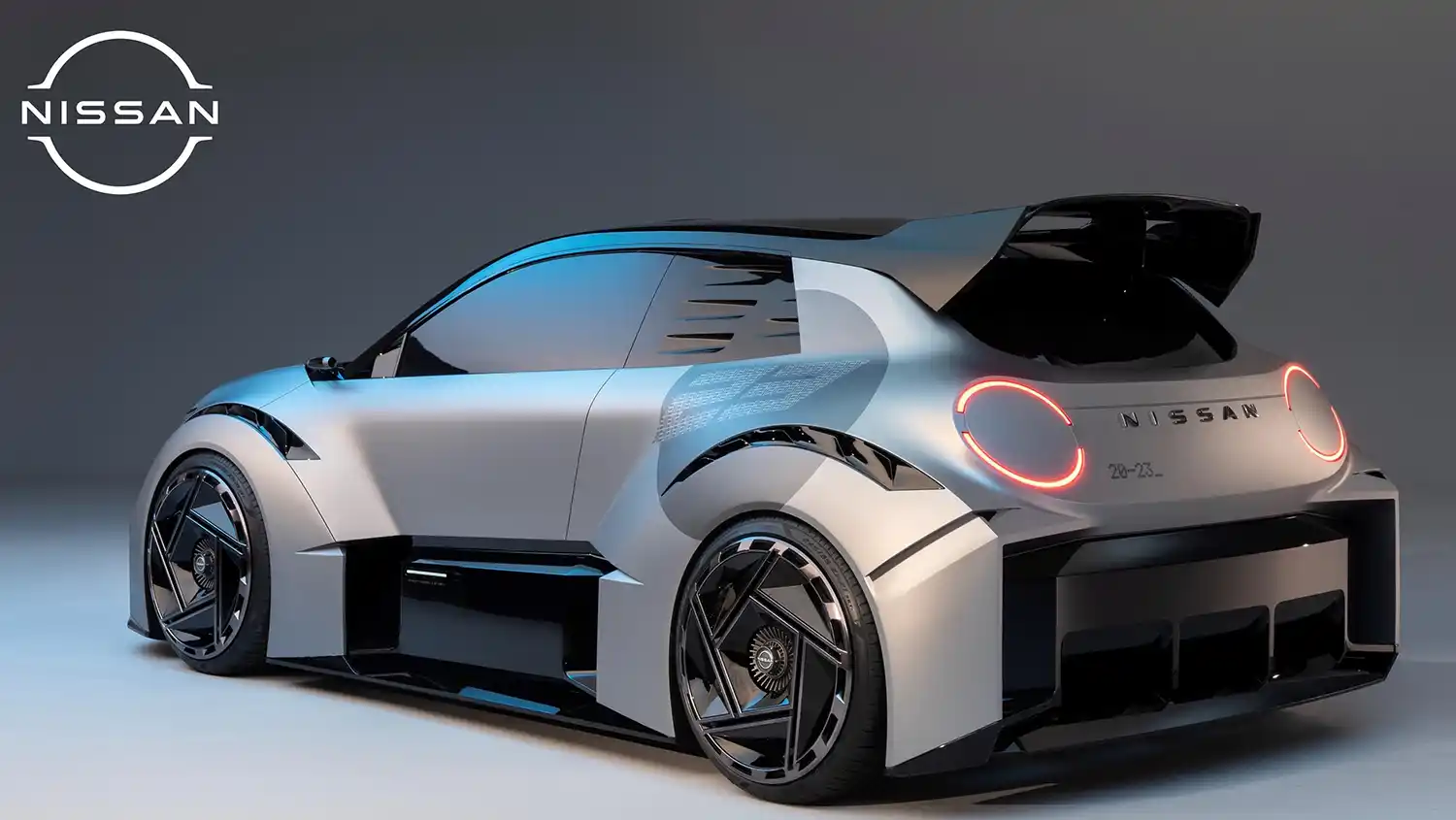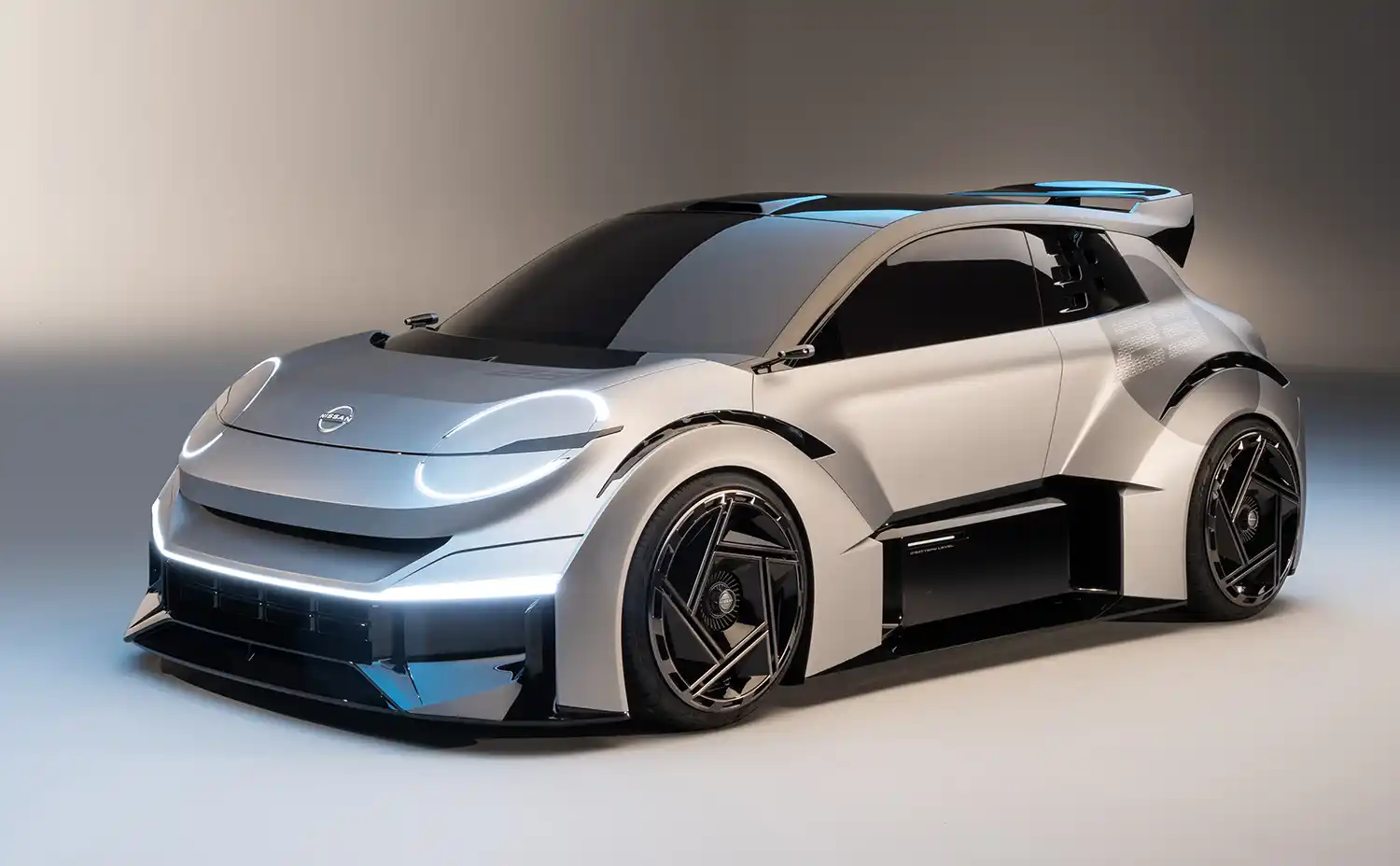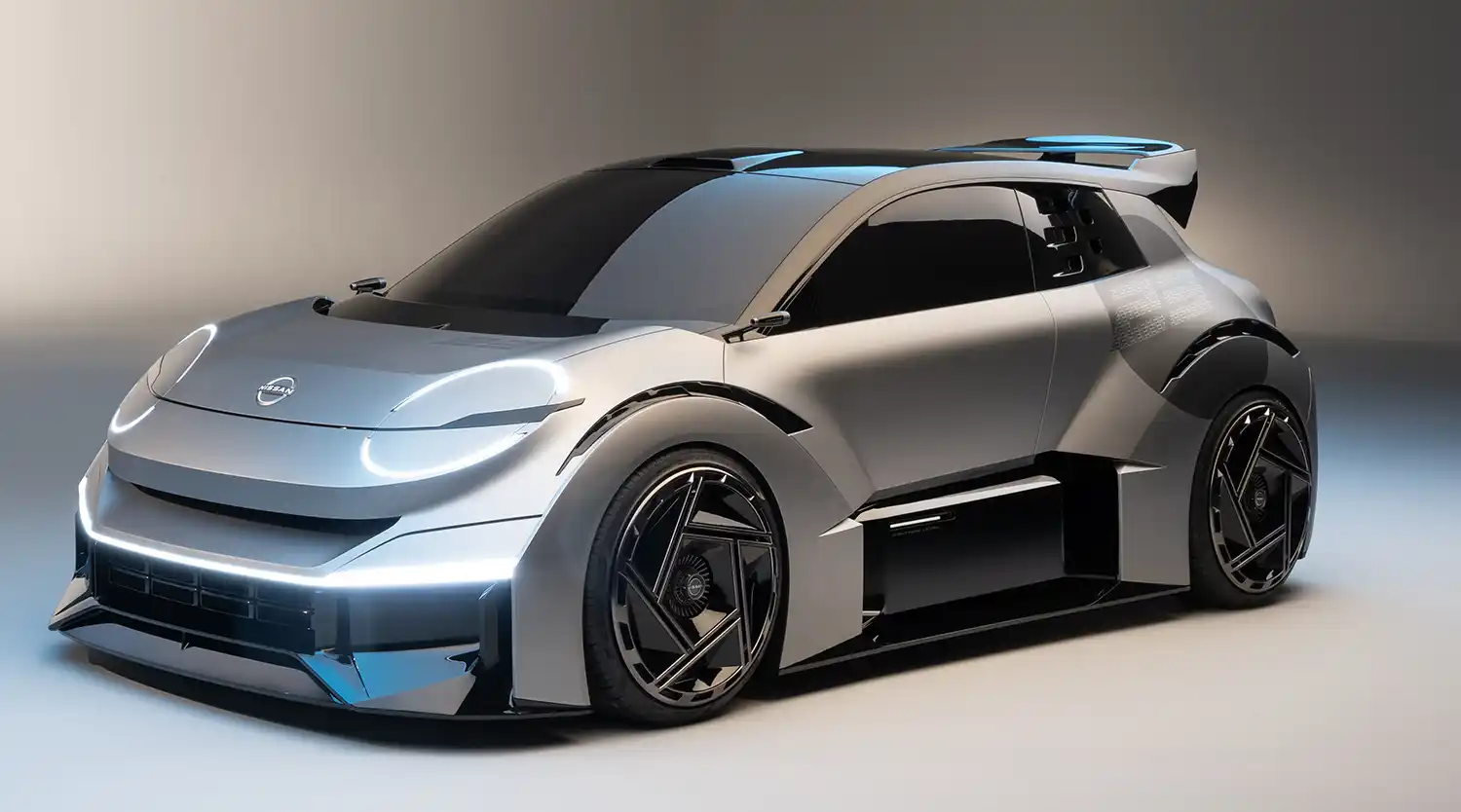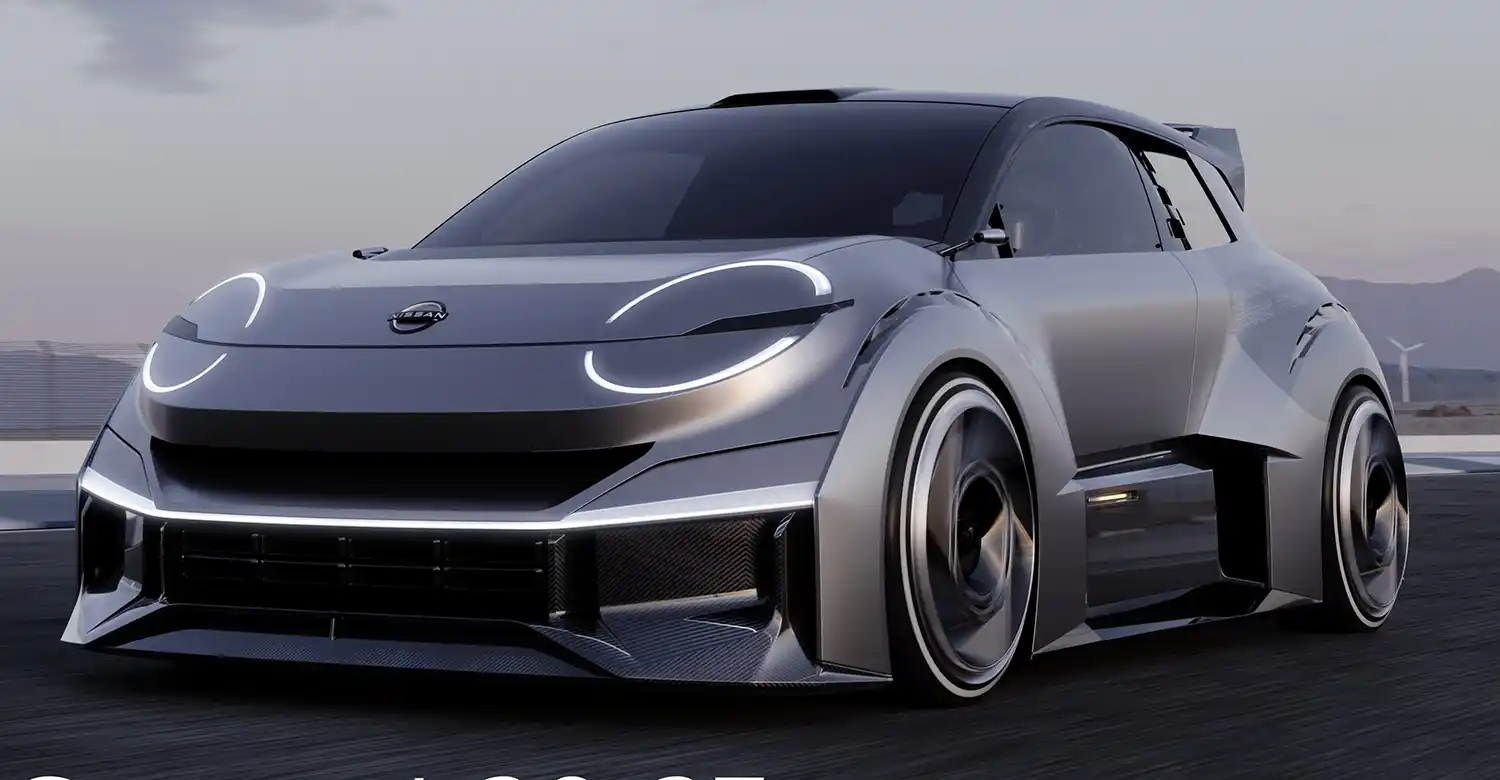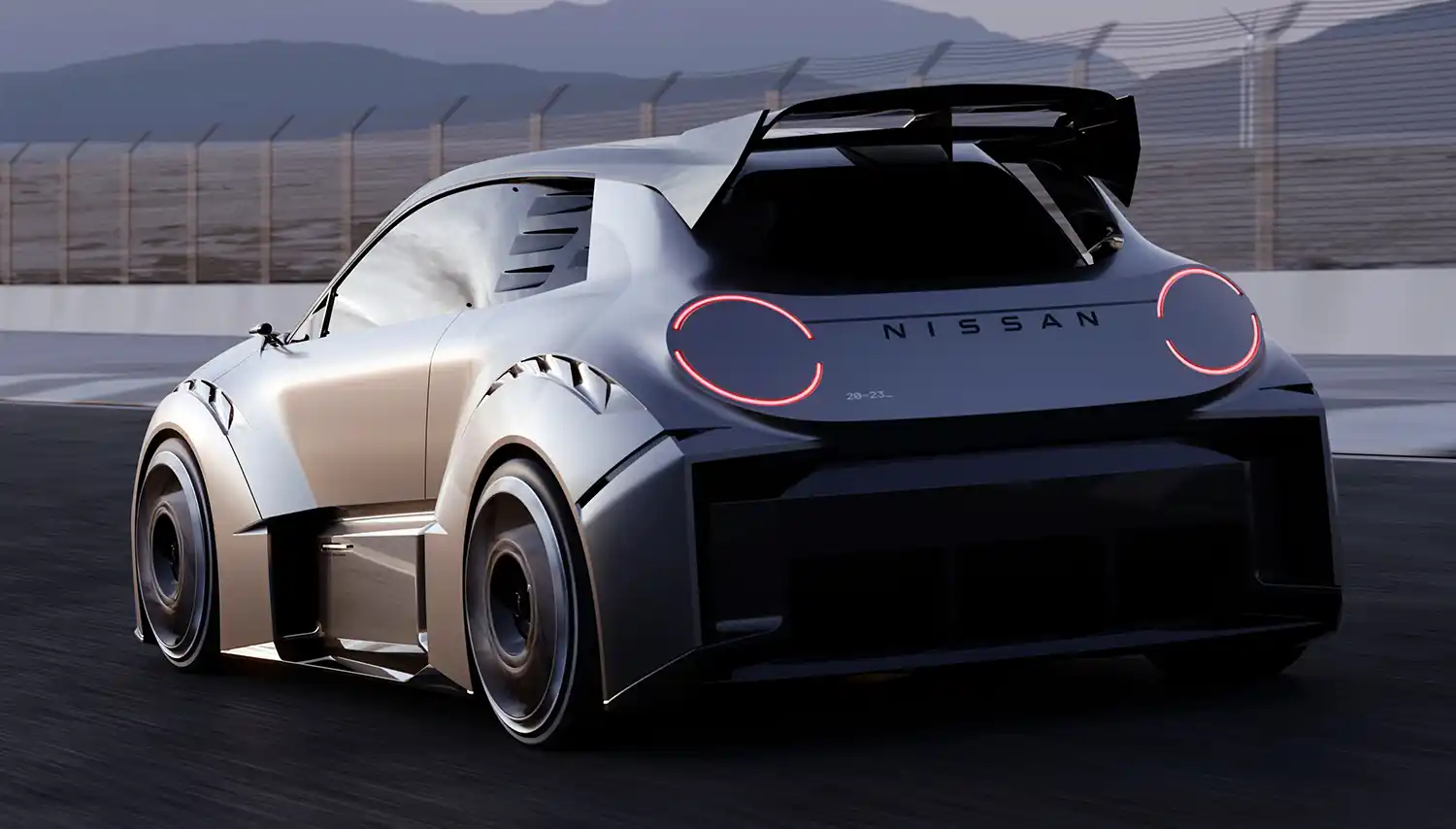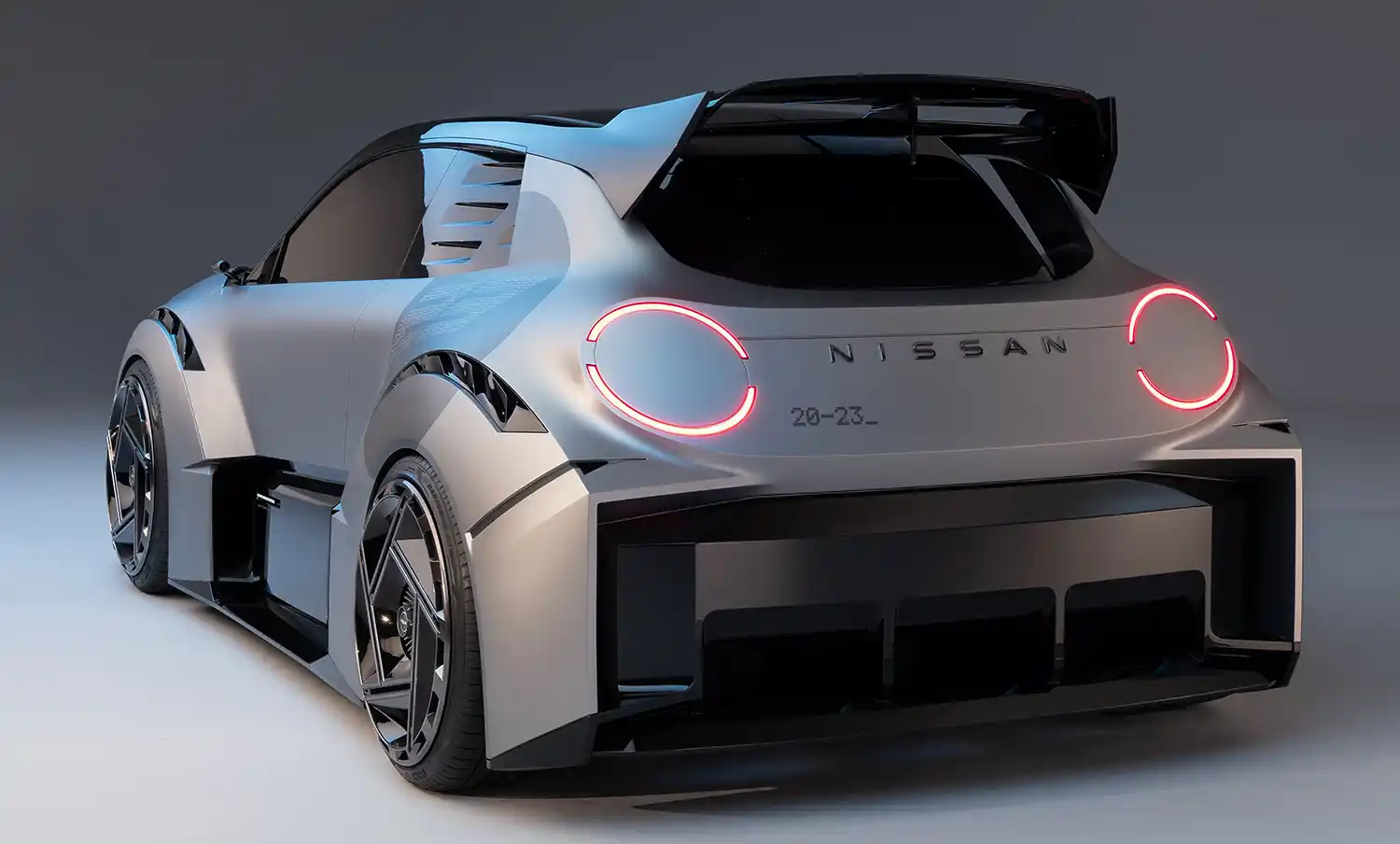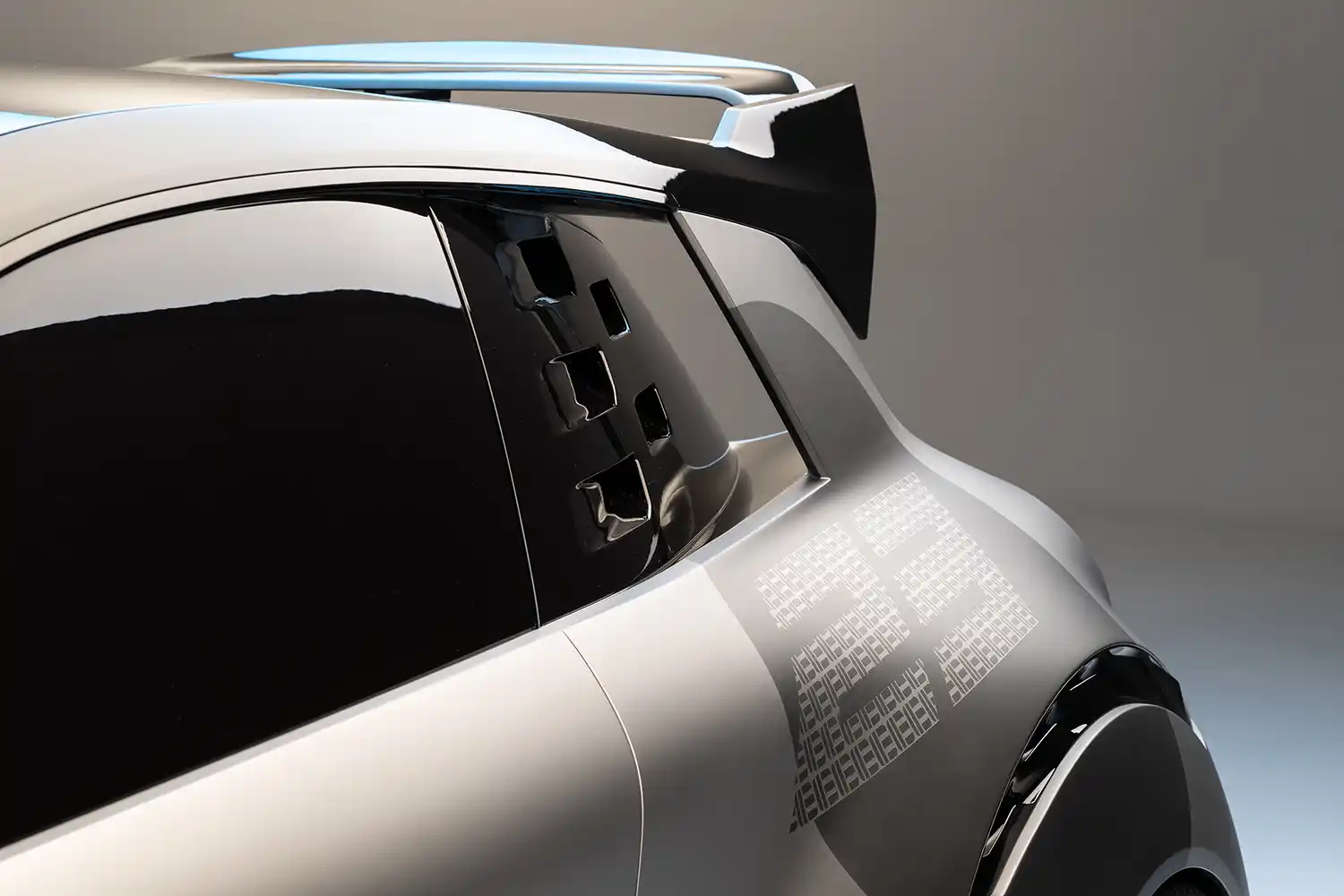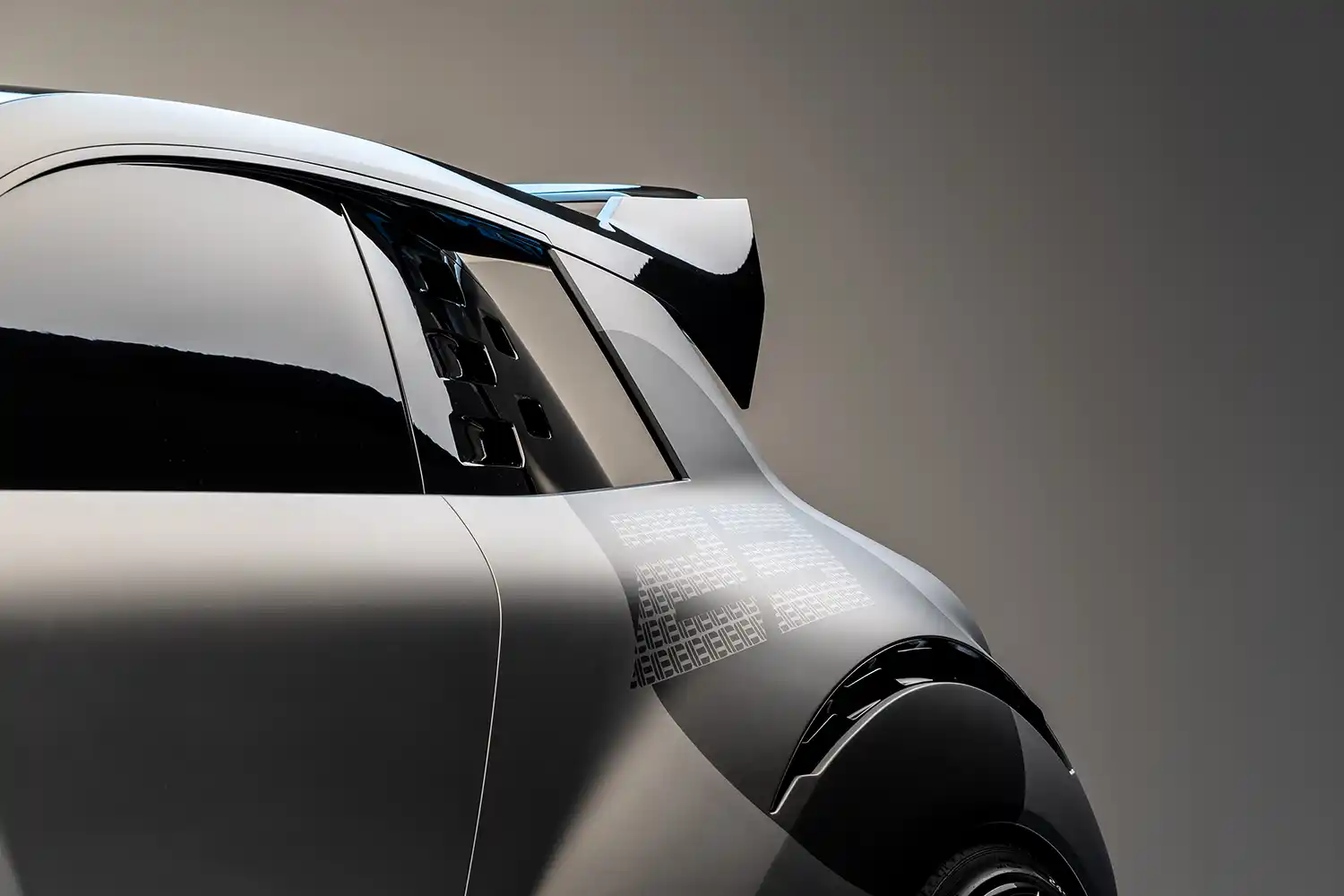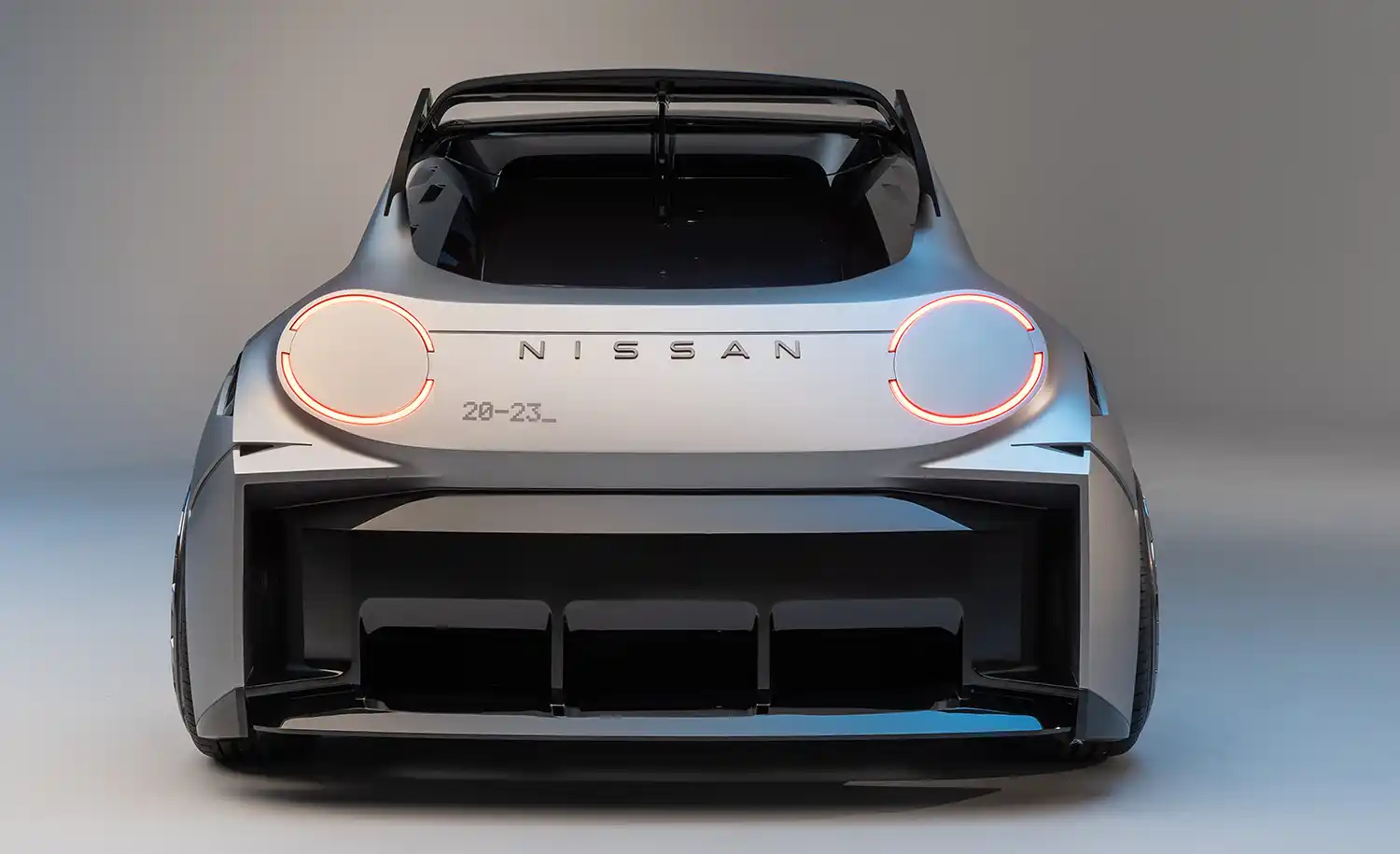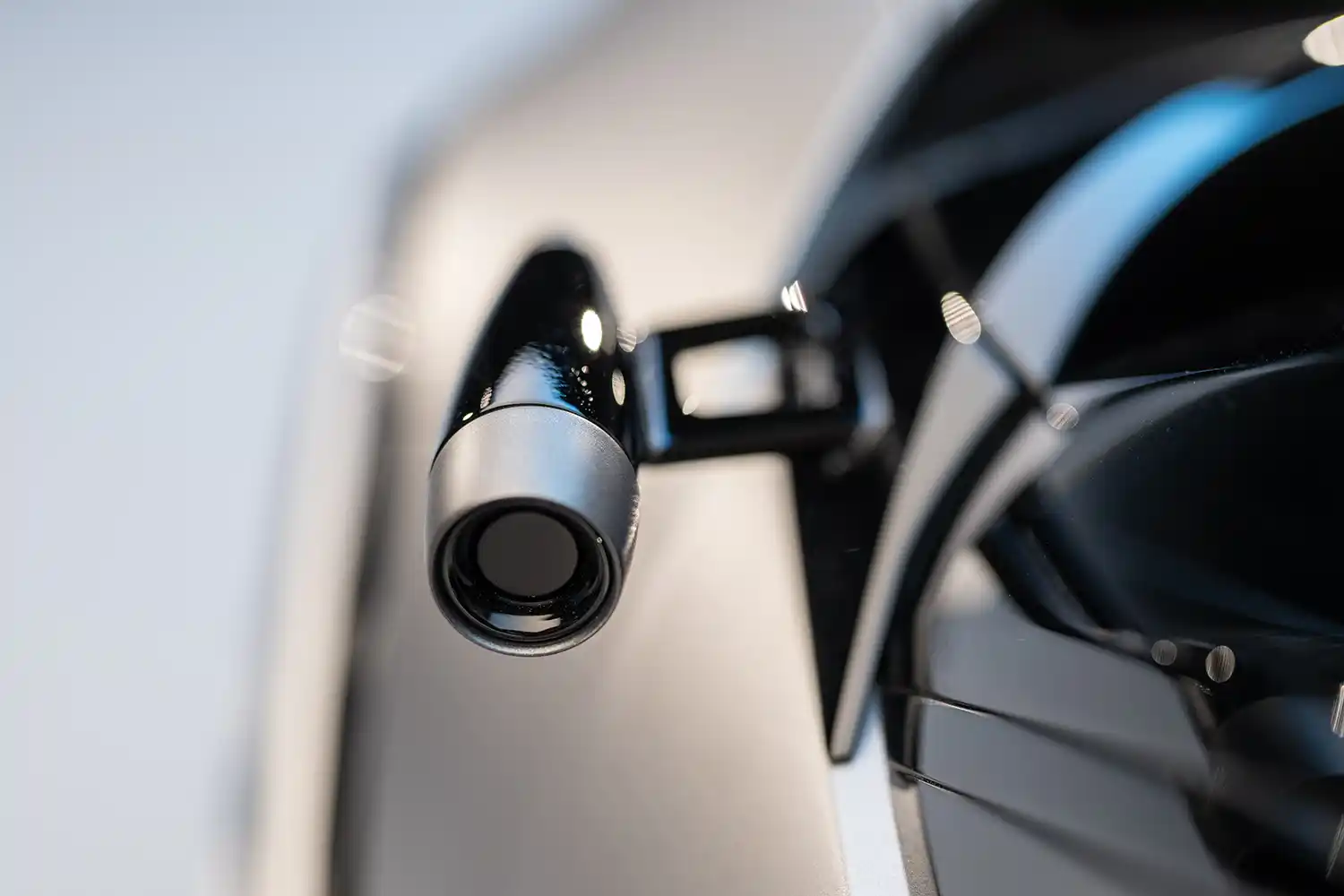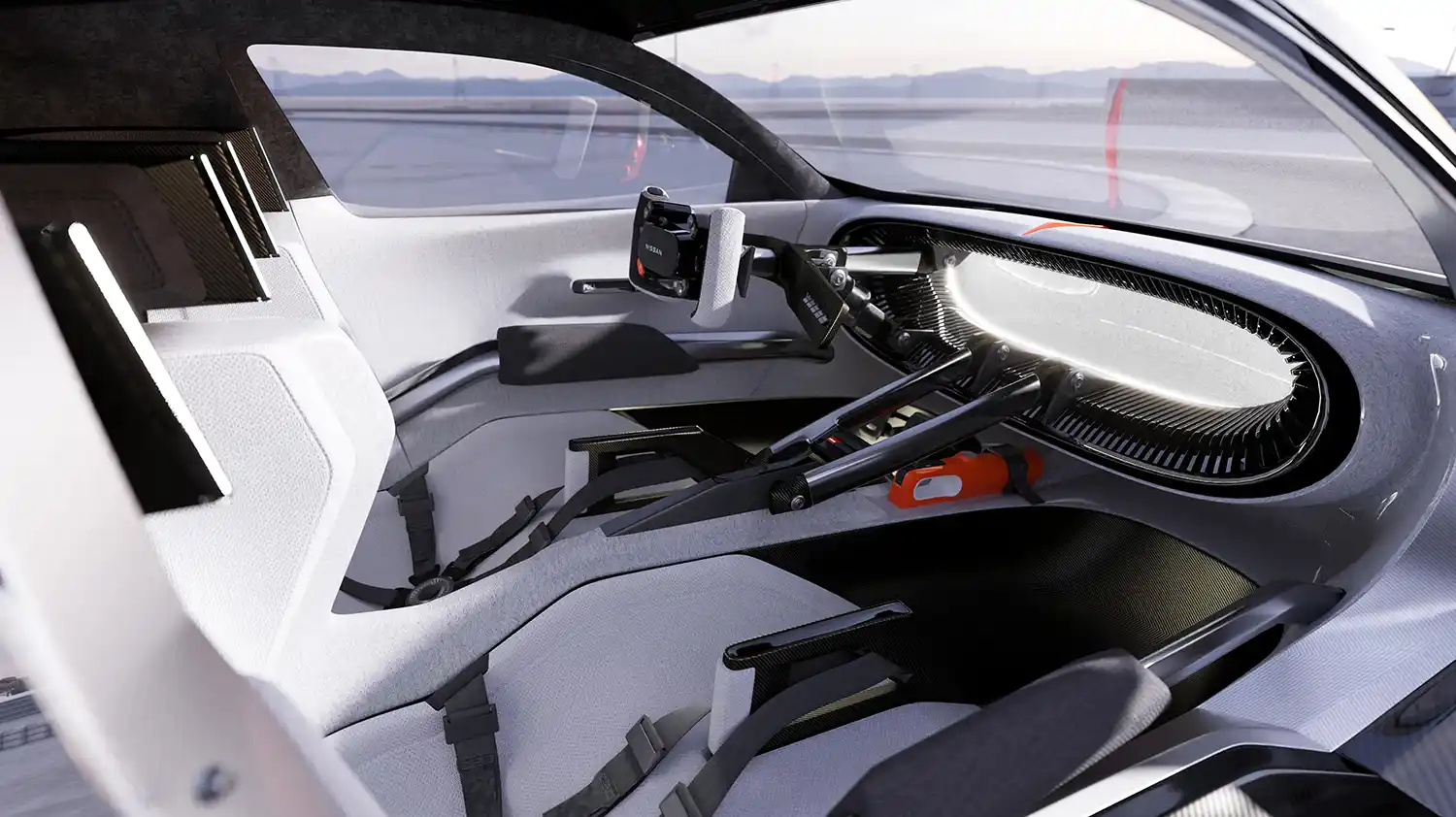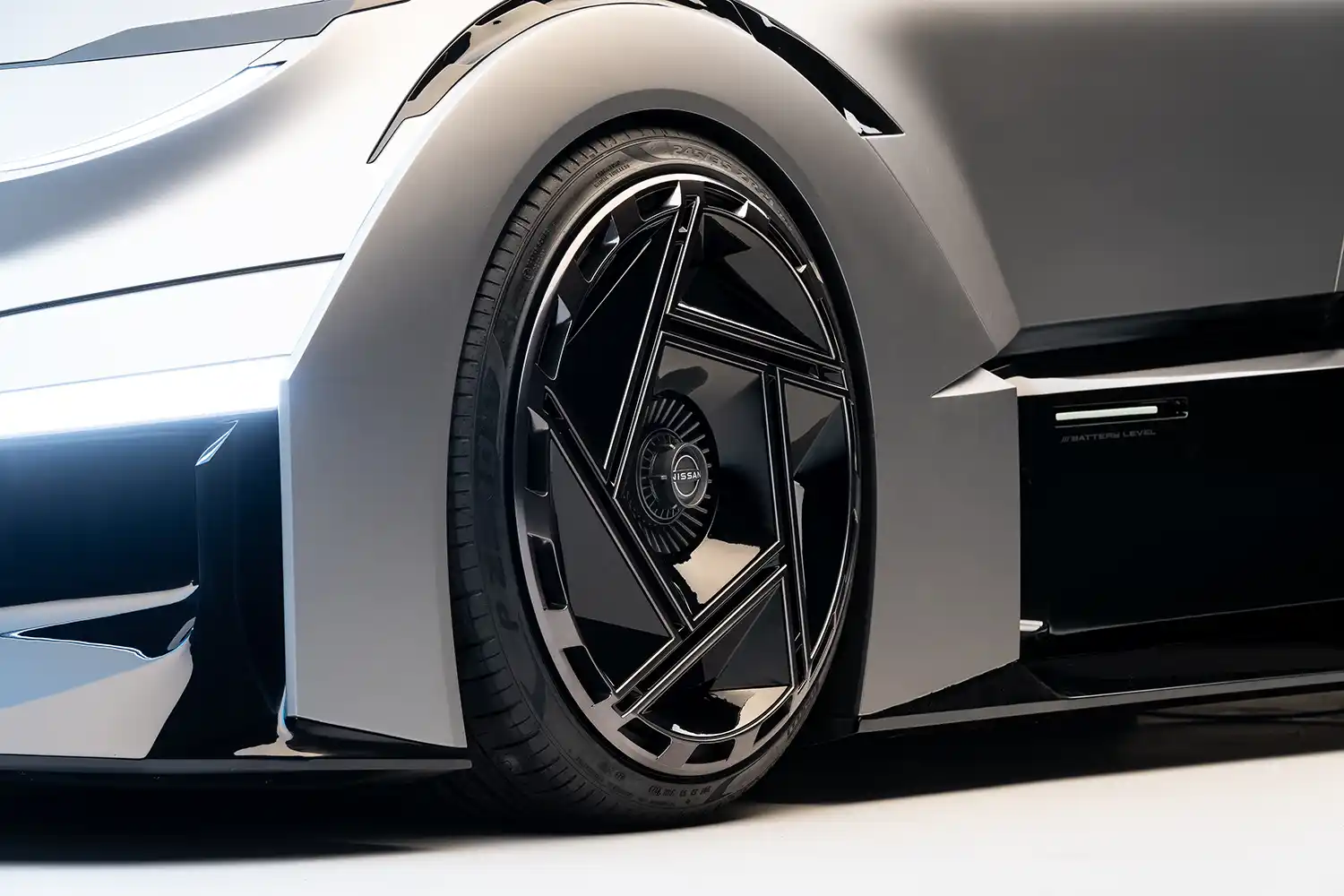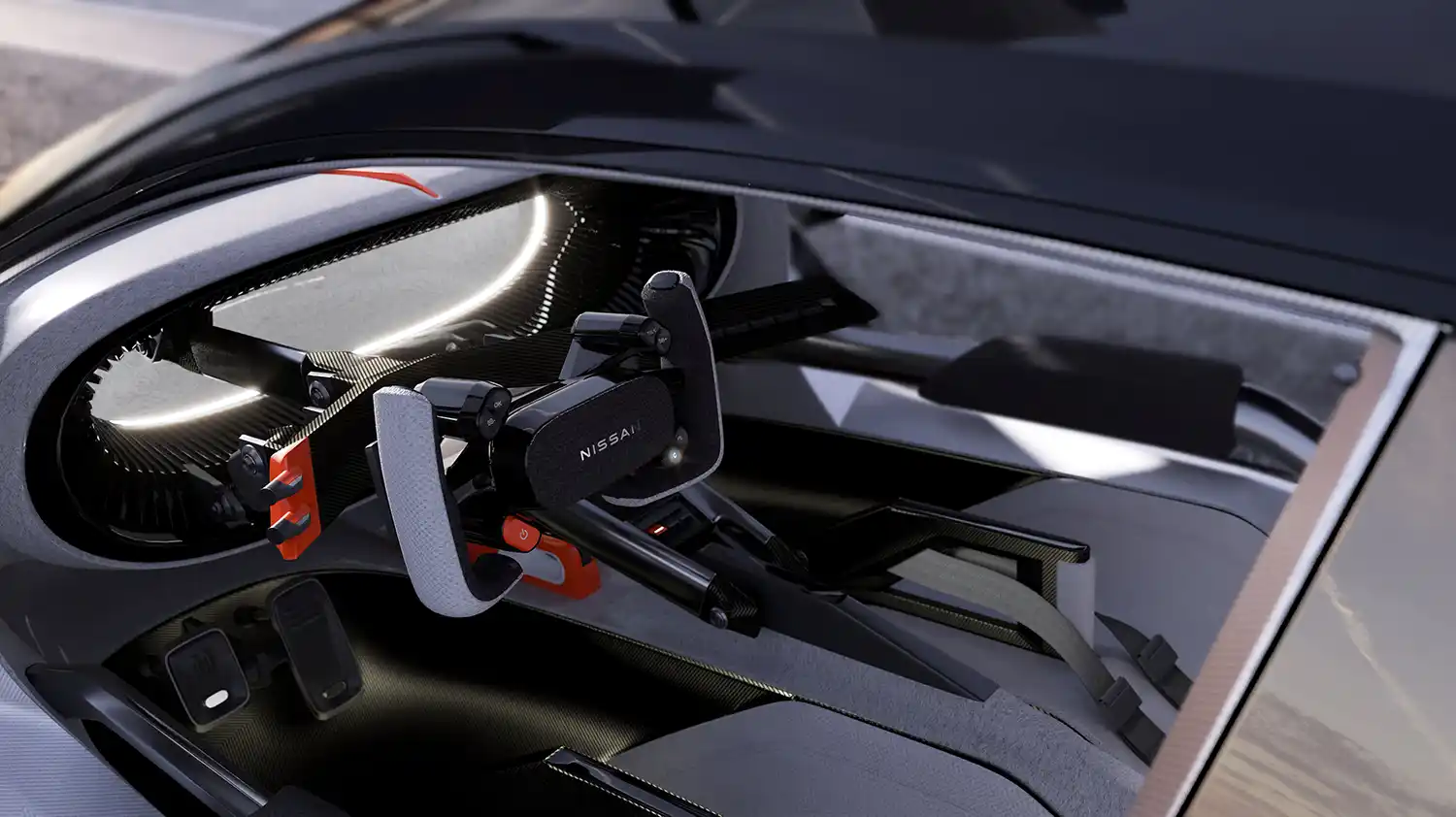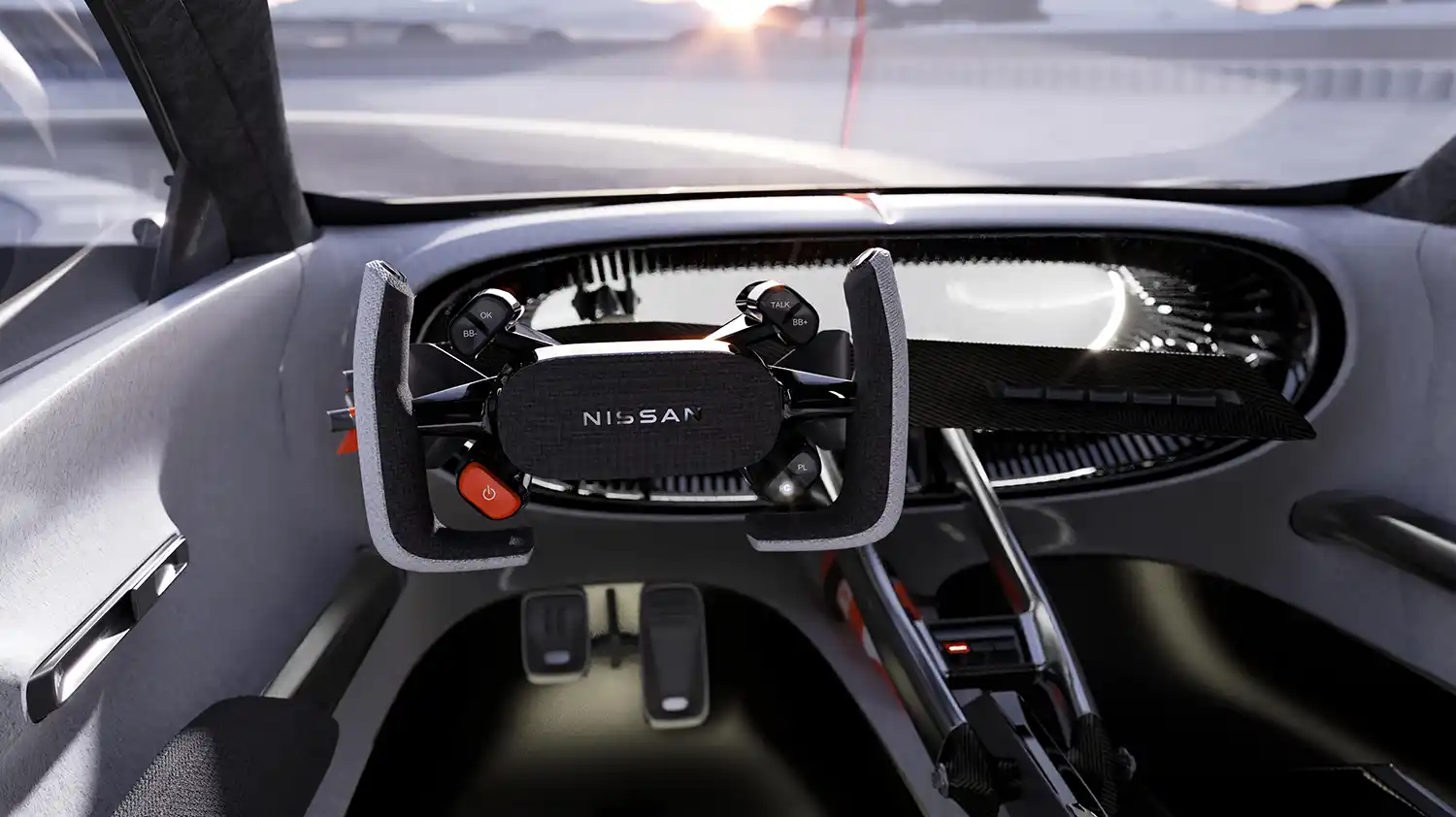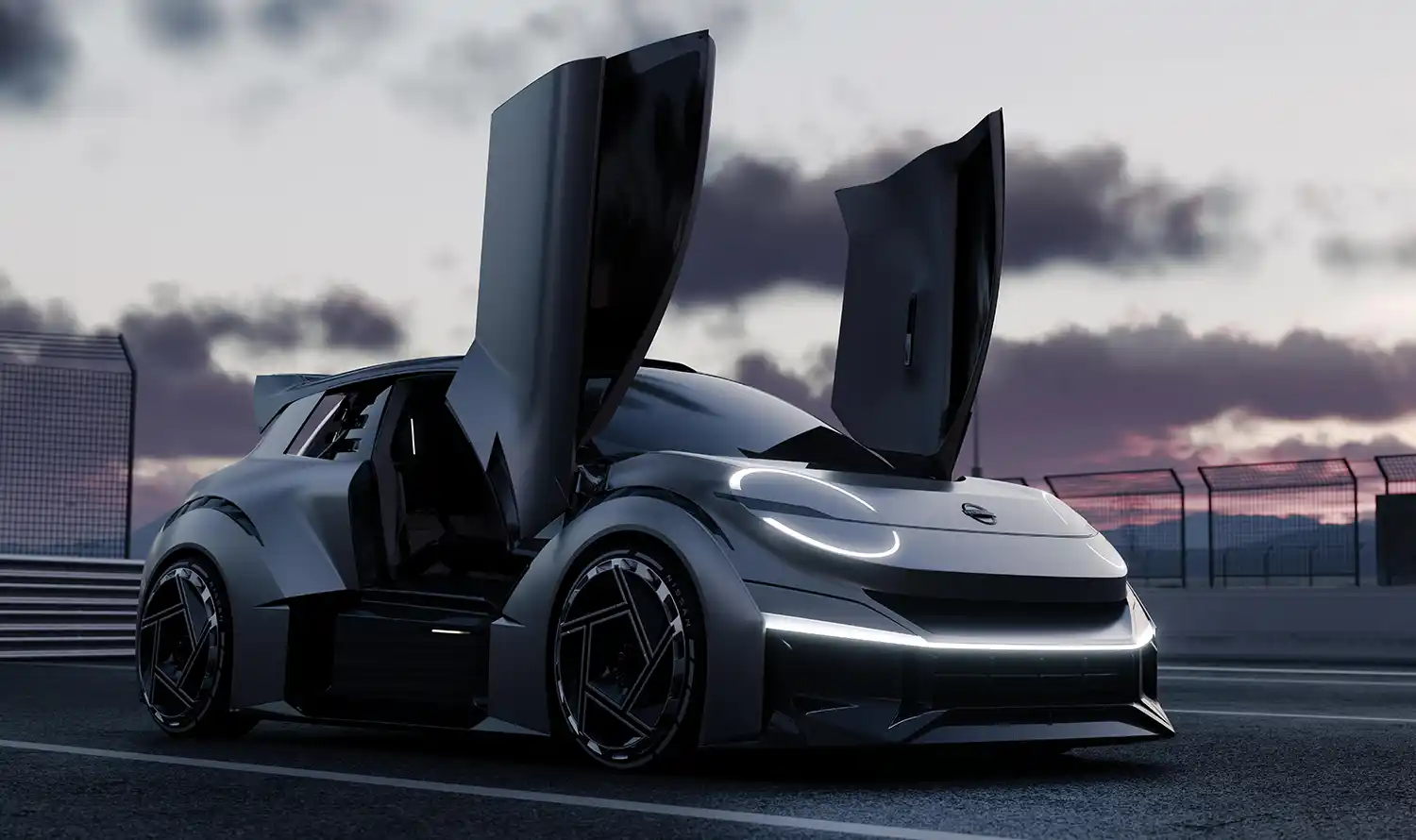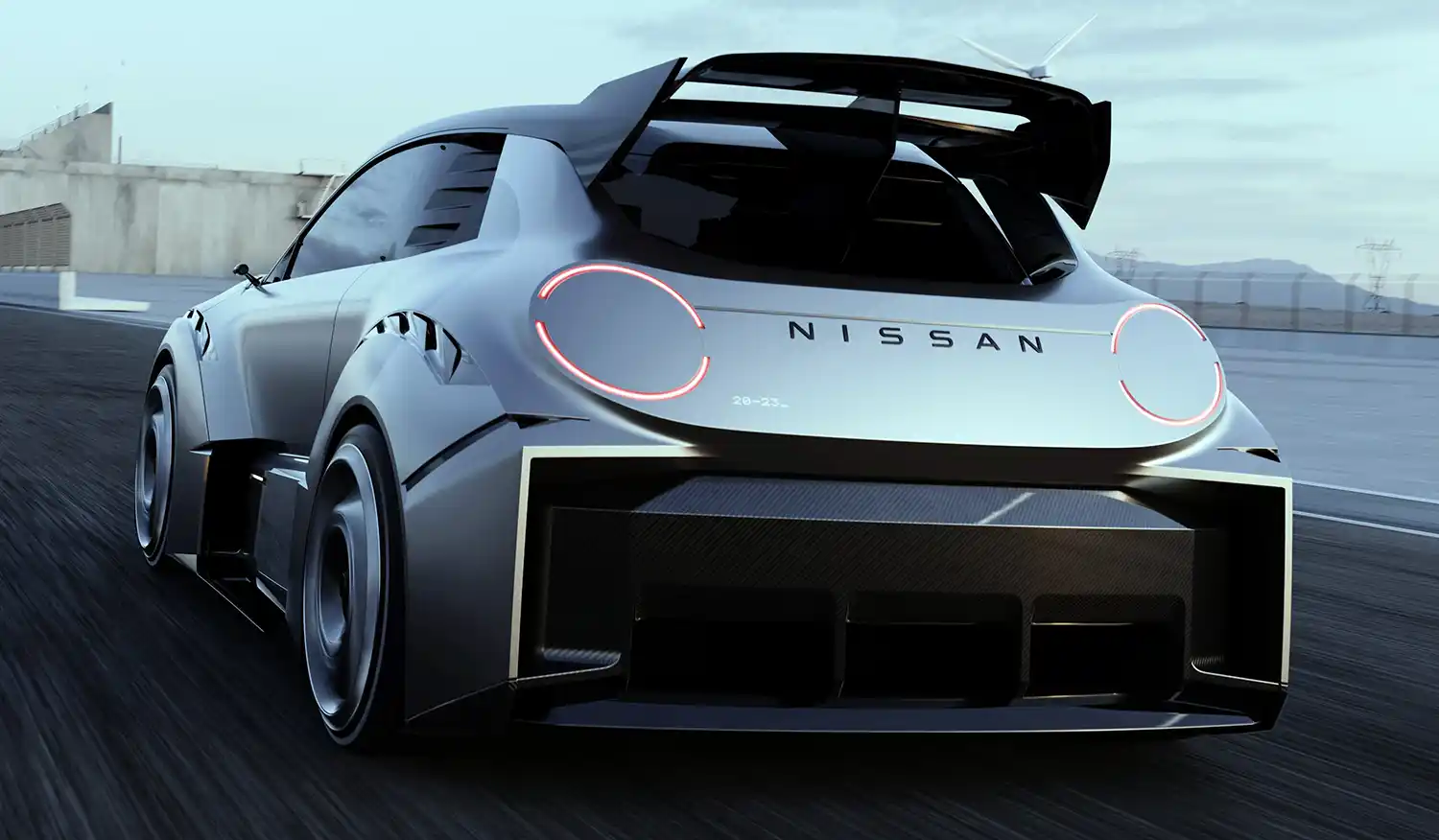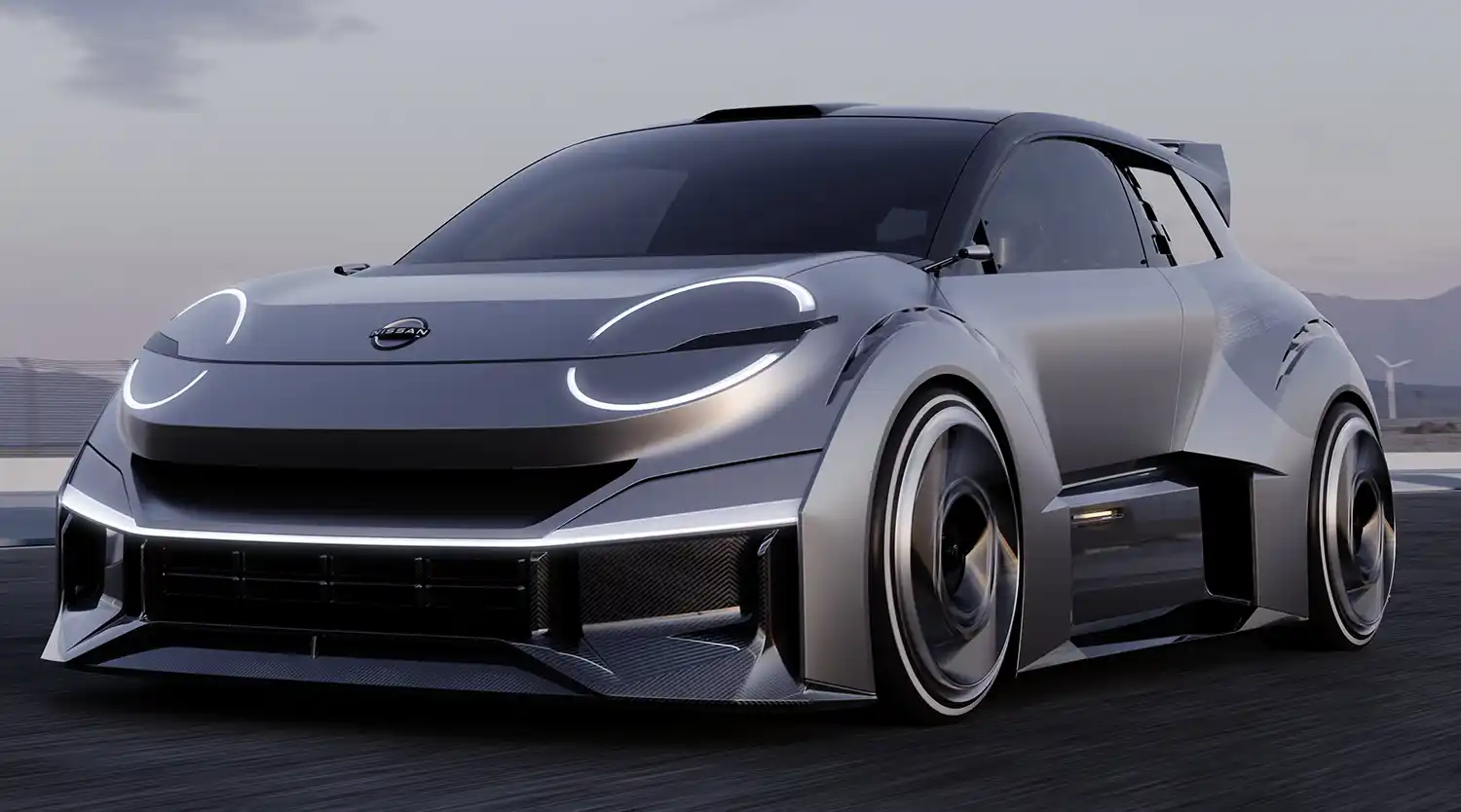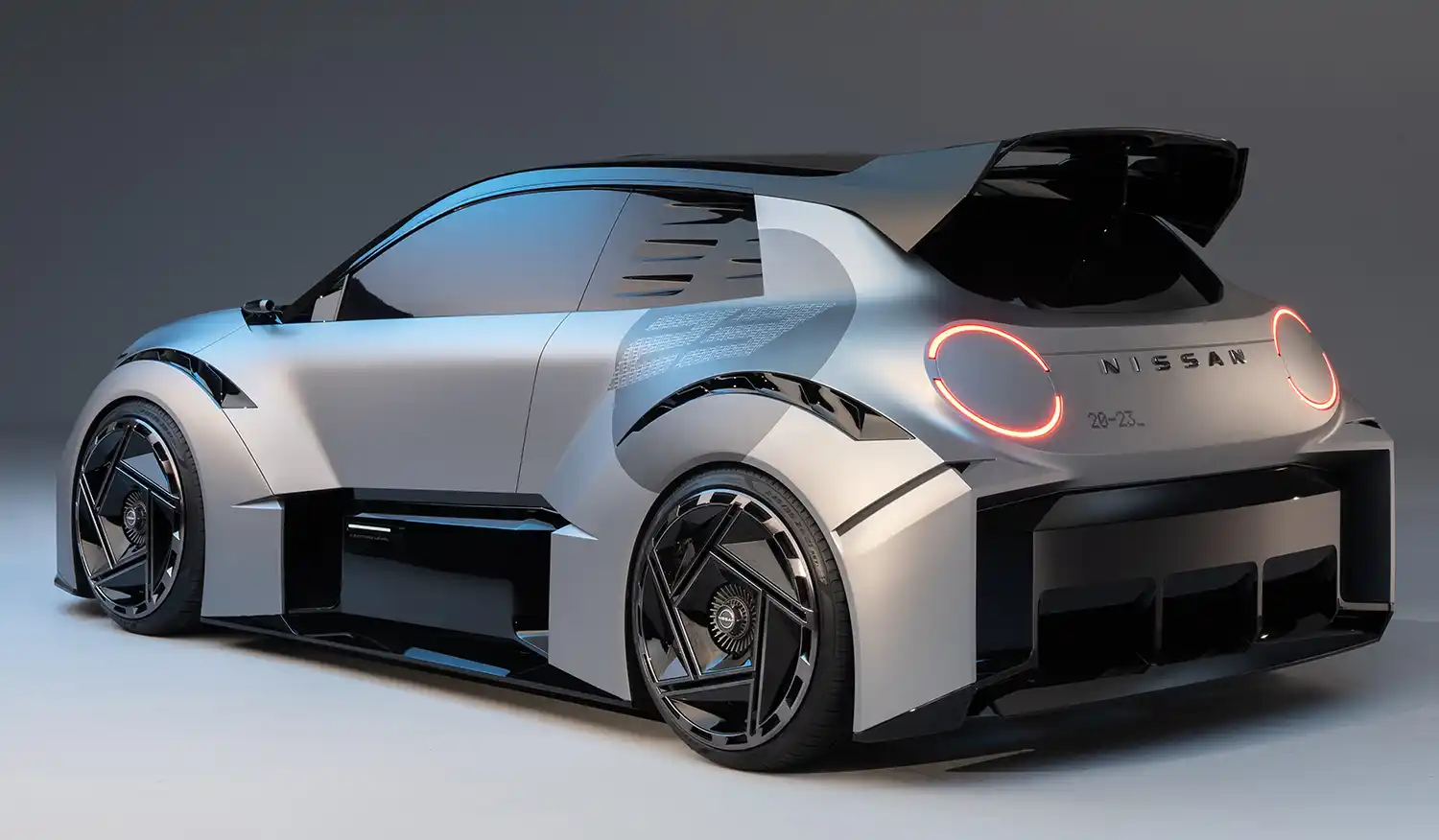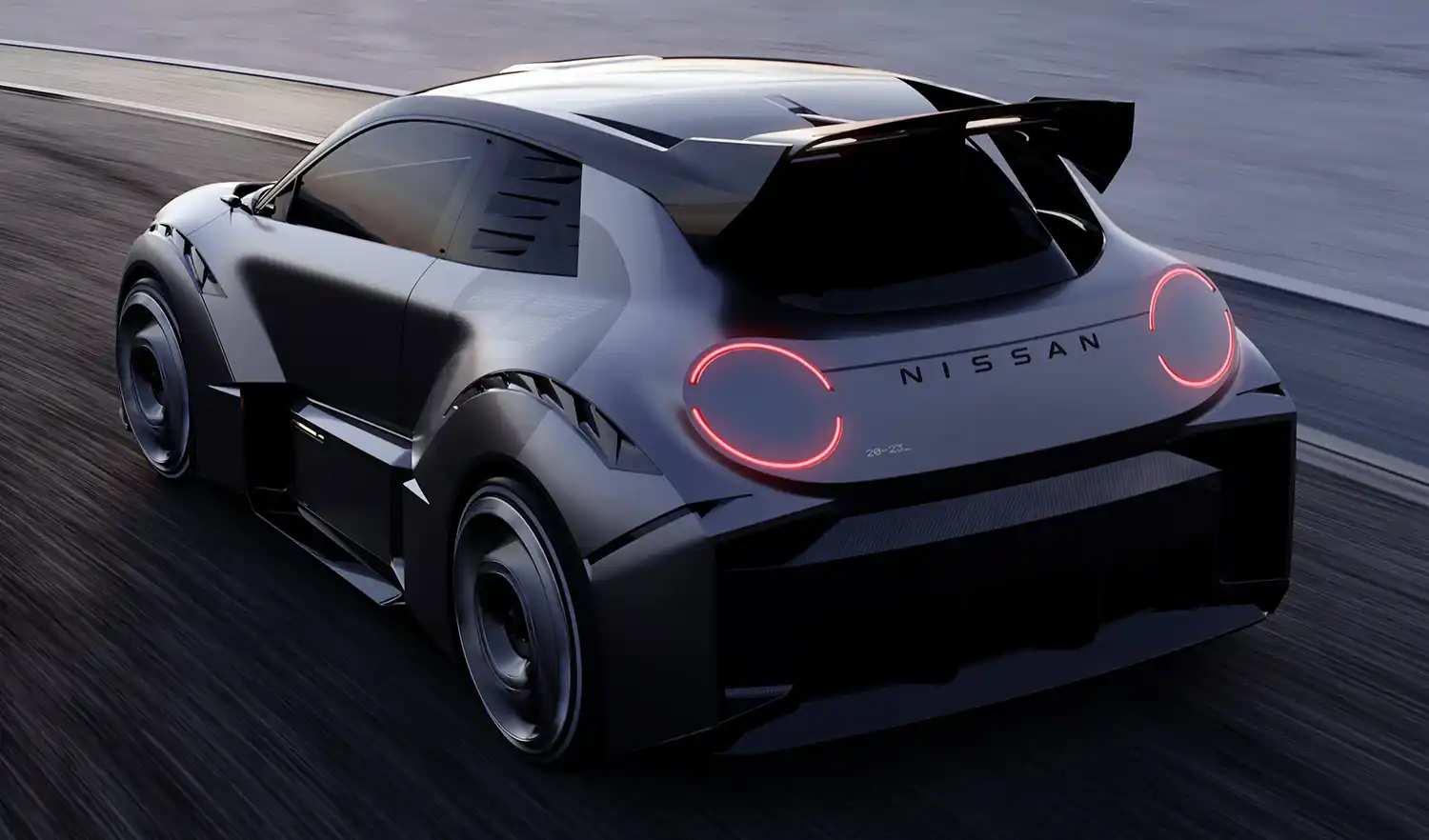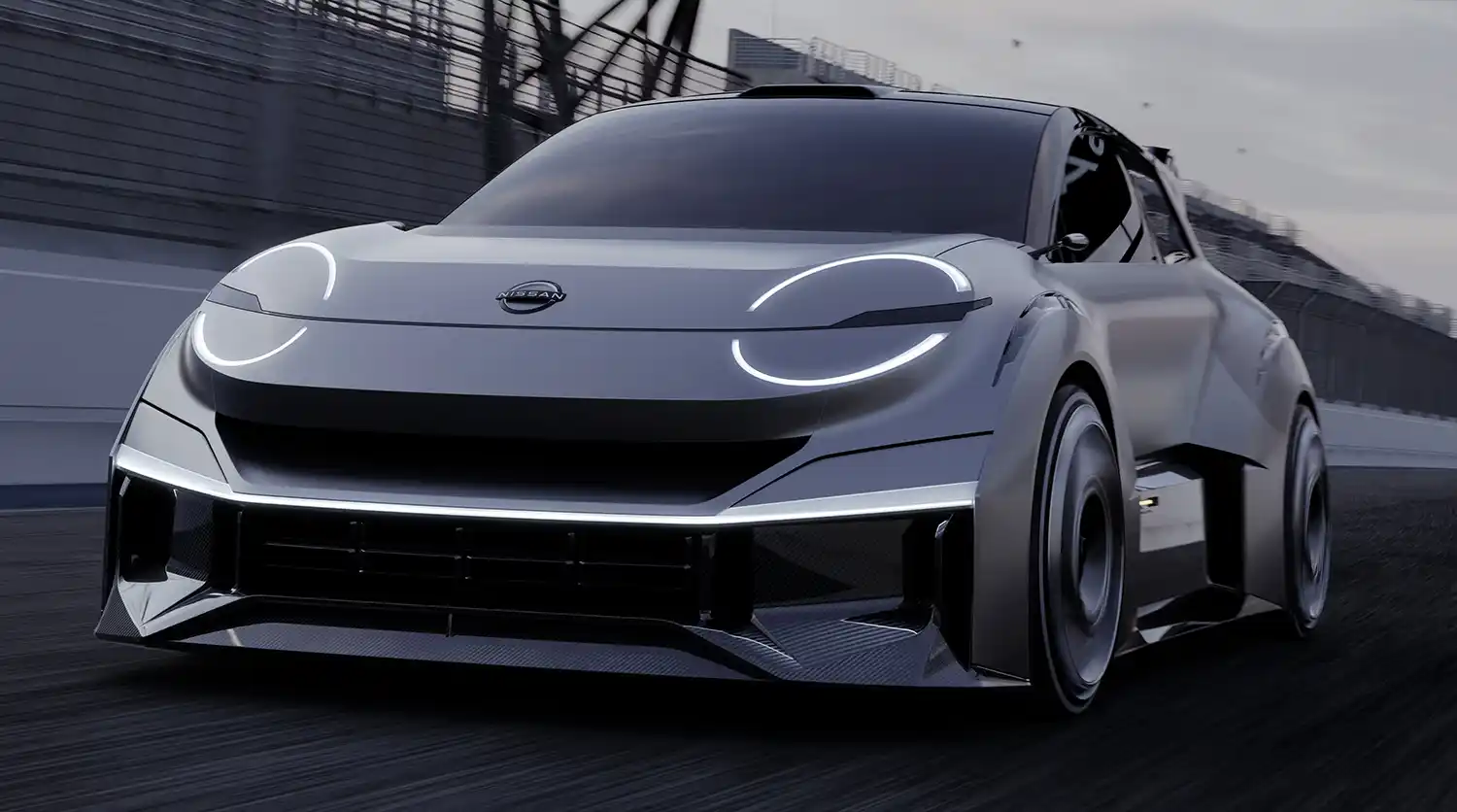
The Nissan Concept 20-23 was designed by a team including some the younger members of NDE, with the simple brief to design a car – with no constraints – which they would like to drive on the streets of the city where they work.
The Concept 20-23 name reflects 20 years of NDE’s position in the heart of London, as well as the company’s traditional number 2 (ni) 3 (san) and the current year. It also continues a long Nissan tradition of bringing eye-catching playfulness to the world of hatchbacks and city cars. With the heritage of Nissan’s so-called Pike cars, such as the Be-1, Pao, Figaro and S-Cargo, Concept 20-23 brings a 21st century twist to this small-car tradition.
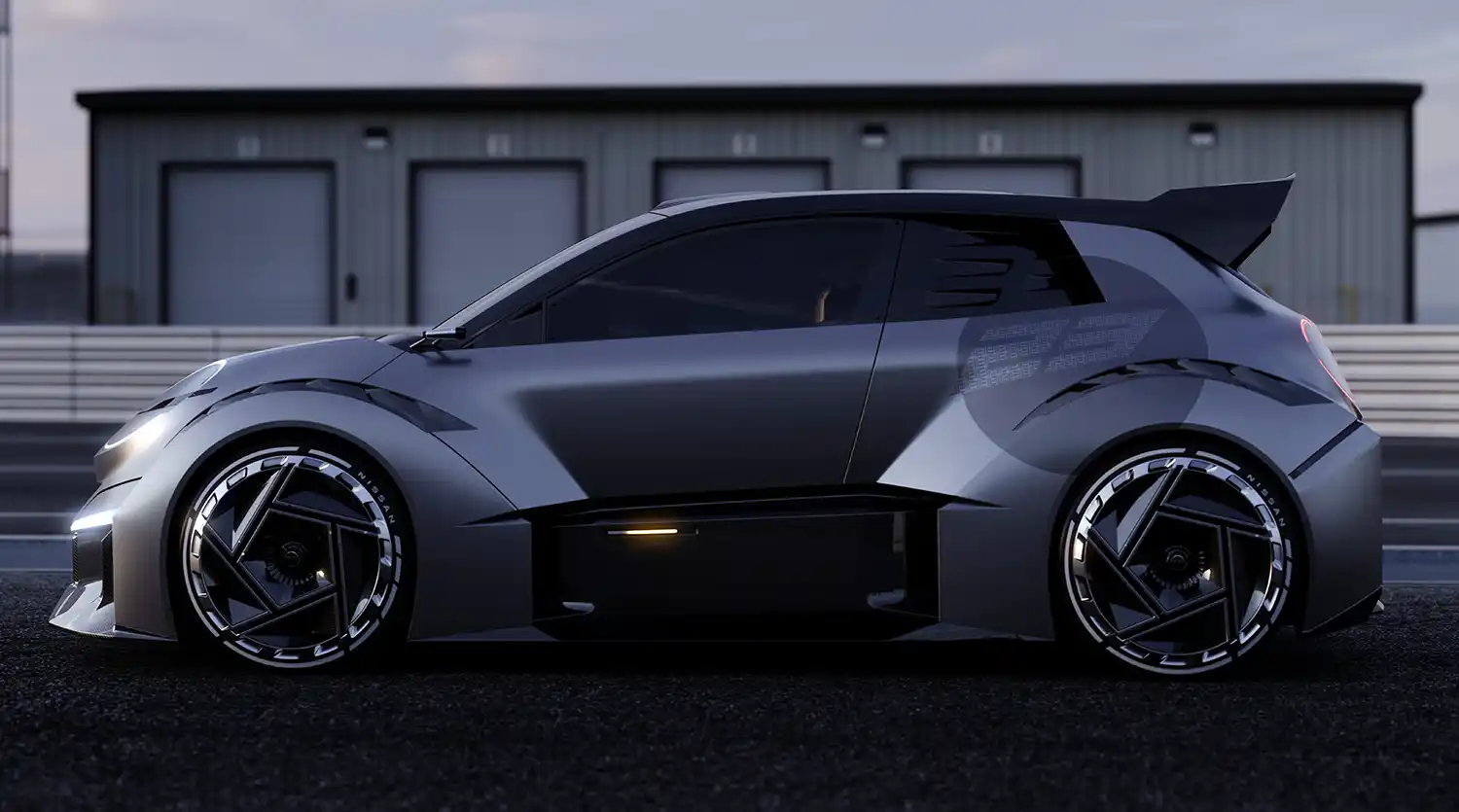
Speaking about the Concept 20-23 at its unveil in London, Alfonso Albaisa, Nissan’s Senior Vice President for global design, said: “The young team here at NDE was given a simple brief: design a fun electric city car that you’d like to drive every day in London. The 20-23 Concept that they designed is a compact hatchback which is strongly influenced by the online racing world. I love the story it tells about how the worlds of modern city living, online gaming and zero emissions mobility intersect.”
The modern twist on this small car playfulness reflects both the world of online racing and Nissan’s participation in Formula E. The Concept 20-23’s basic 3-door hatchback body-style features extreme aerodynamic addenda front and rear, with deep skirts which direct the airflow away from the front of the car, through apertures to cool the brakes and out through vents just behind the front wheels.
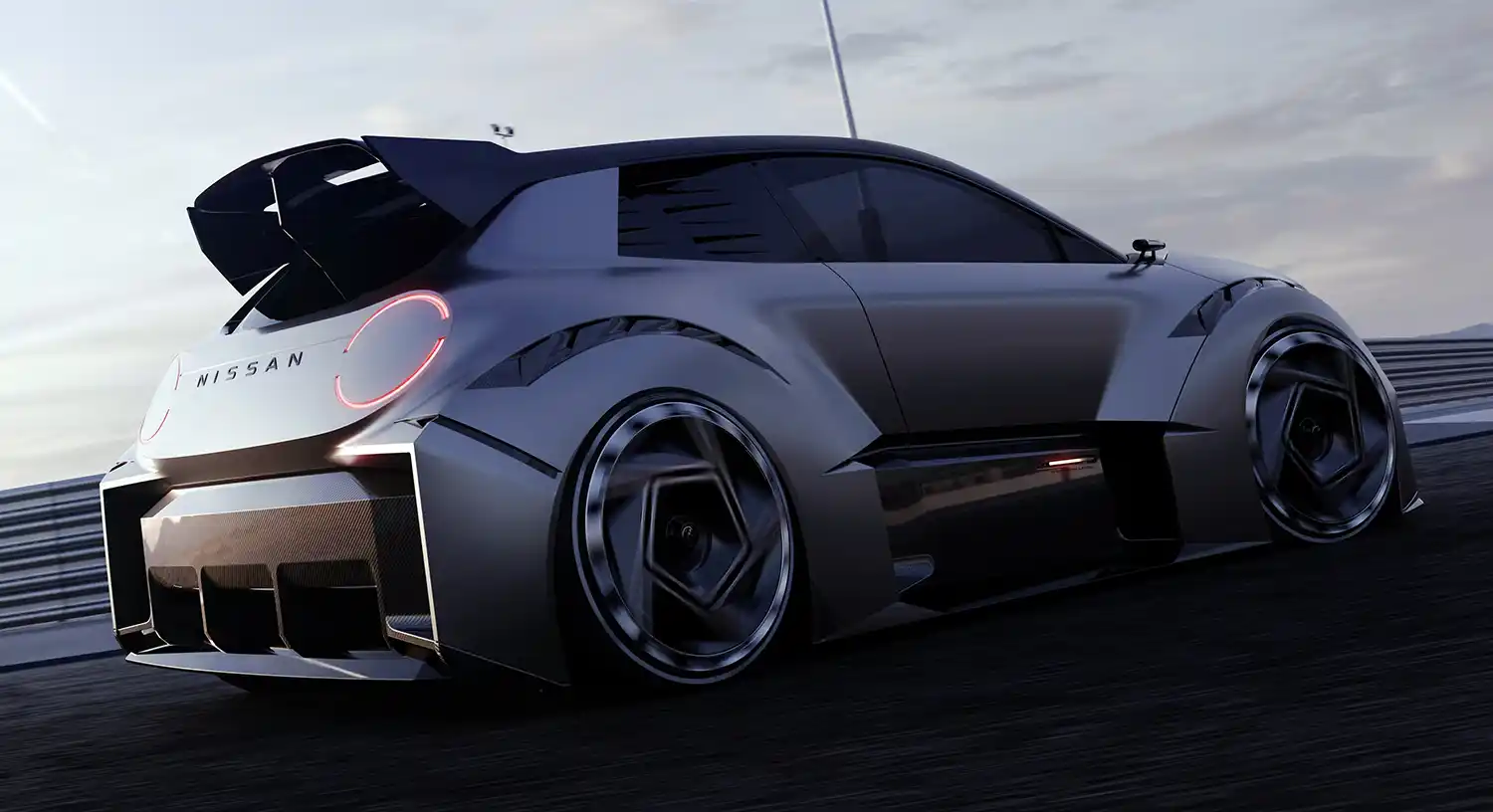
The nose of the car consists of a flat plane from which angles up to the top of the hood, giving the front an unexpectedly clean surface. This is where the front headlights are positioned, with their distinctive appearance consisting of a thin upper and lower semi-circle and enhanced by a sharp beam thanks to LED technology. The turn signal is part of the same semi-circle LED unit.
They give the front of the Concept 20-23 a friendly appearance, in among the complex shapes which govern the airflow.
From the side, the car’s muscularity comes from extended wheel arches which shroud large wheels with low profile tyres. The top side of the wheel arches front and rear feature vented louvres to reduce the pressure that can create air resistance in the wheel bay.
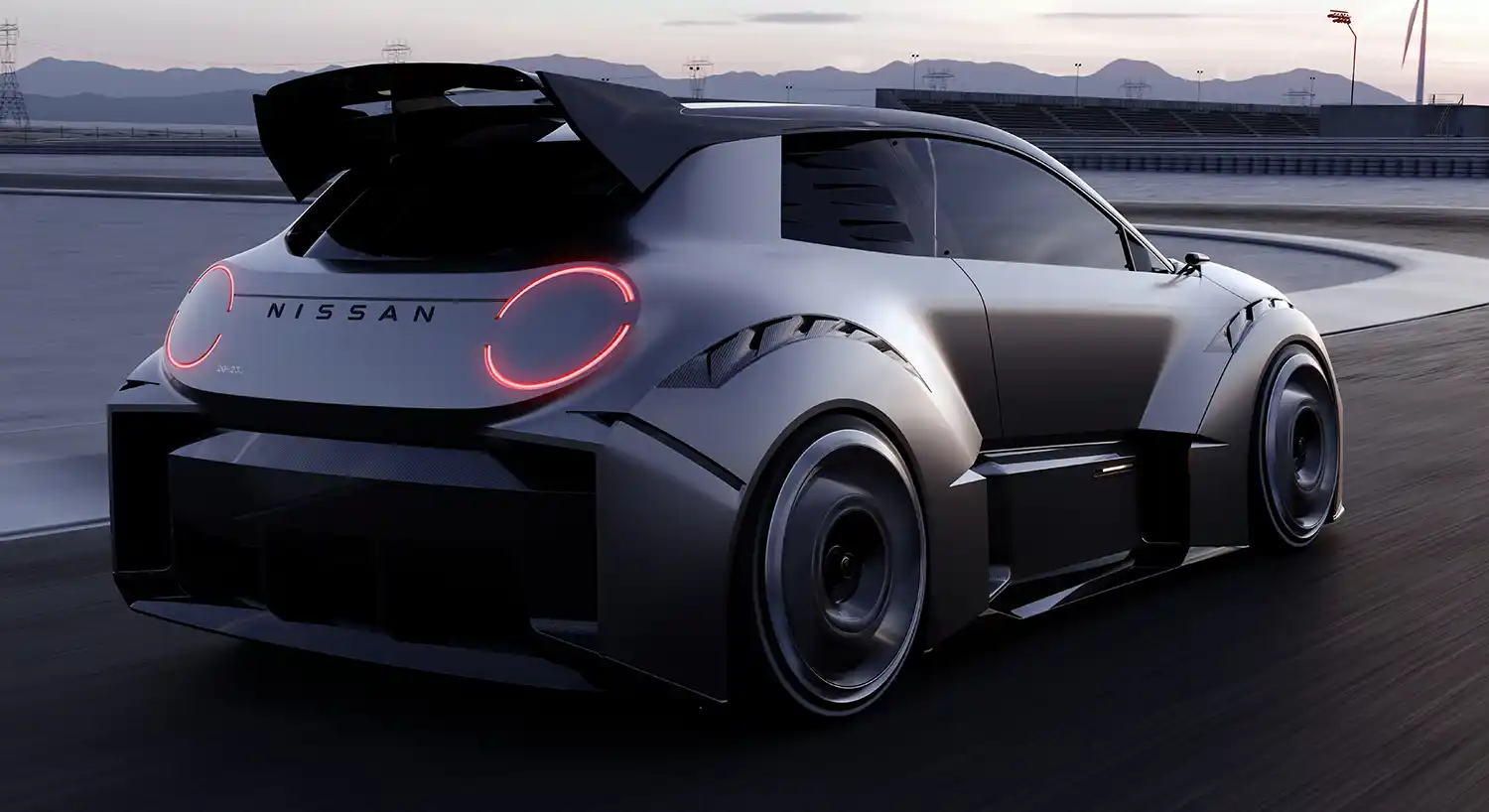
The curvature of the wheel arches finish abruptly at the level of the lower door where angular intersections frame the air outlet behind the front wheel. And the same angular slits on the rear wheel arches allow the airflow to cool the rear brakes. The extended skirts hug the body side on the lower portion of the car.
At the rear, a large single-piece spoiler emerges harmoniously from the roof rail, with endplates which curve from the near vertical close to the c-pillar over to the angled horizontal element which generates the downforce. Rear visibility isn’t compromised by the rear spoiler, avoiding a common problem that sports cars with rear spoilers face.
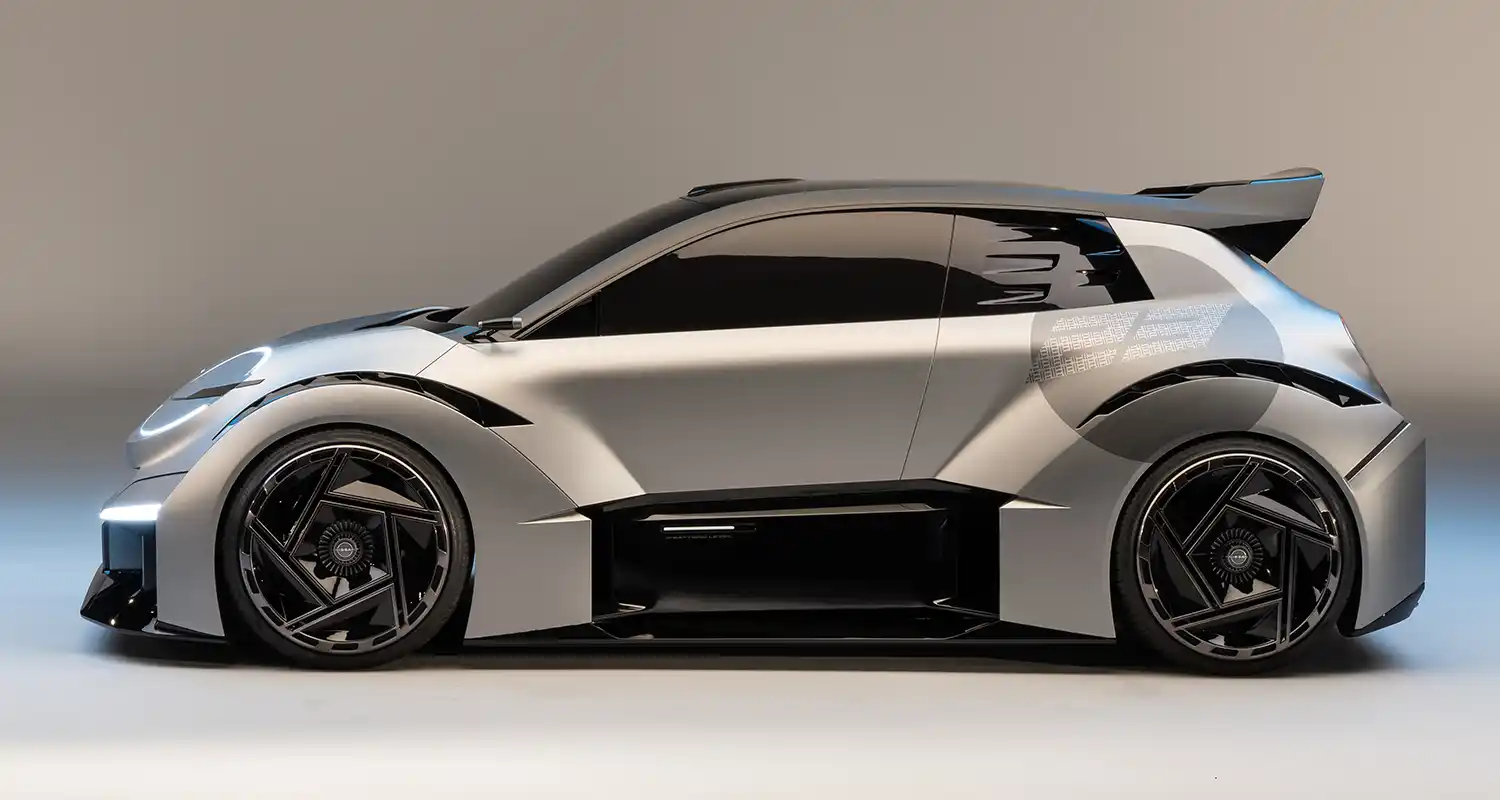
Like the front, each of the rear lights consist of a thin upper and lower semi-circle LED which contrast with the squared off forms of the lower portion which is defined by fiercely functional shapes to manage the airflow and to maximise the creation of downforce as the air escapes from under the car. The full width of the car is emphasised by a horizontal bar below what looks like a soft smile that defines the outline of rear hatchback.
A thin air intake is integrated into the car’s roof where it meets the windscreen header, giving ventilation to the occupants as they enjoy Concept 20-23’s performance.
The exterior grey paint has a textured finish, giving the impression of being hewn from a single piece of metal, reflecting the gritty environment it was designed to inhabit. The company number – 23 – features on the car’s rear three-quarters.
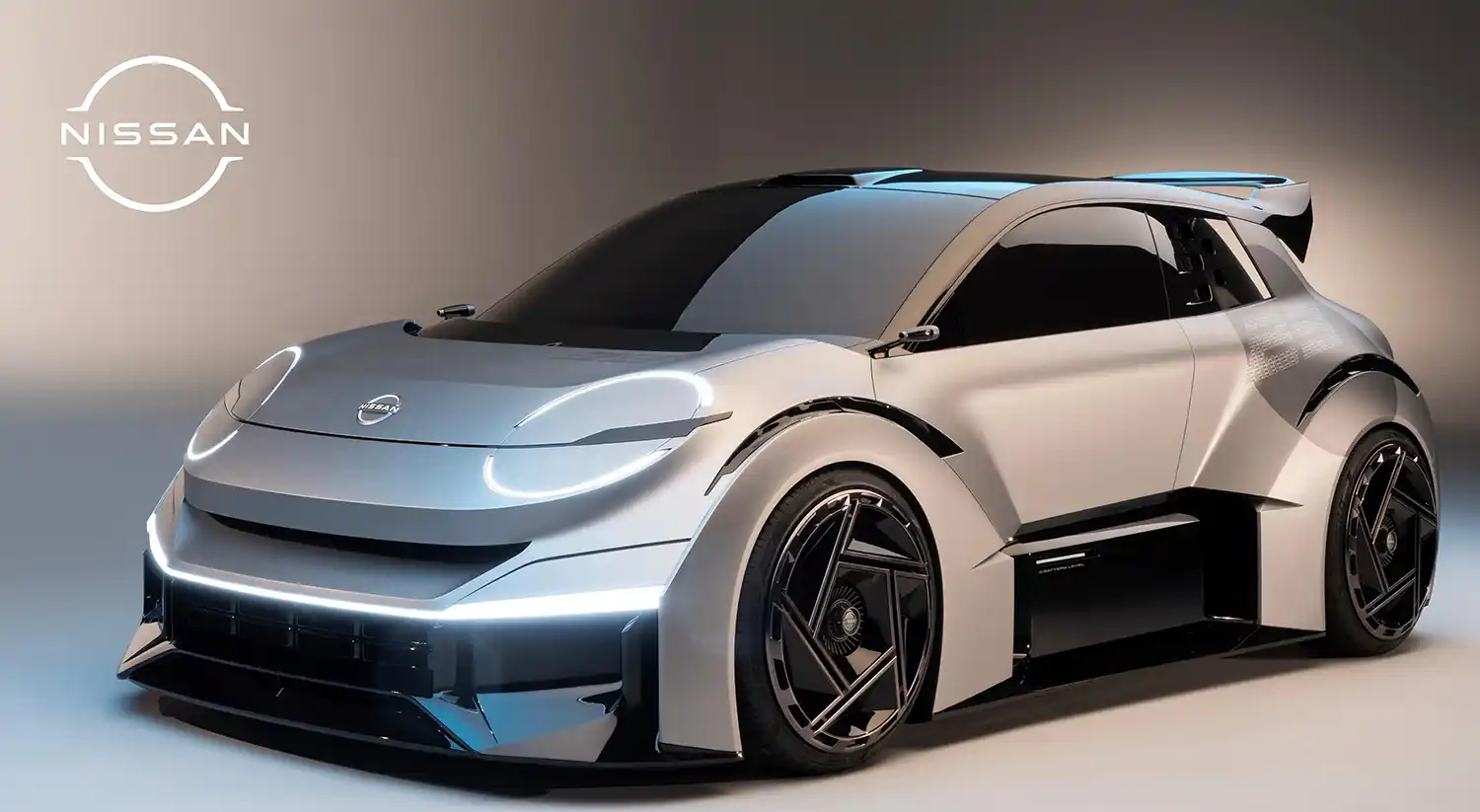
While the Concept 20-23 car model is an exterior model only, the team of interior designers created an interior that reflects the extremely sporty nature of the exterior. First of all, entry is by two scissor doors which hinge upwards from the base of the A-pillar.
A brace bar runs across the door openings covered in foam padding to protect elbows, requiring the driver and passenger to step over it in order to reach their seats. The two deep bucket seats offer tight support, but not at the expense of comfort. They are trimmed in a near-white finish, with a large head-support reminiscent of racing cars.
Once in position, the driver is greeted by a long extended steering column which culminates in a rectangular sports steering wheel festooned with multiple controls and adjustments. Paddles to adjust the electric powertrain performance and additional switches are within fingertip reach behind the wheel.
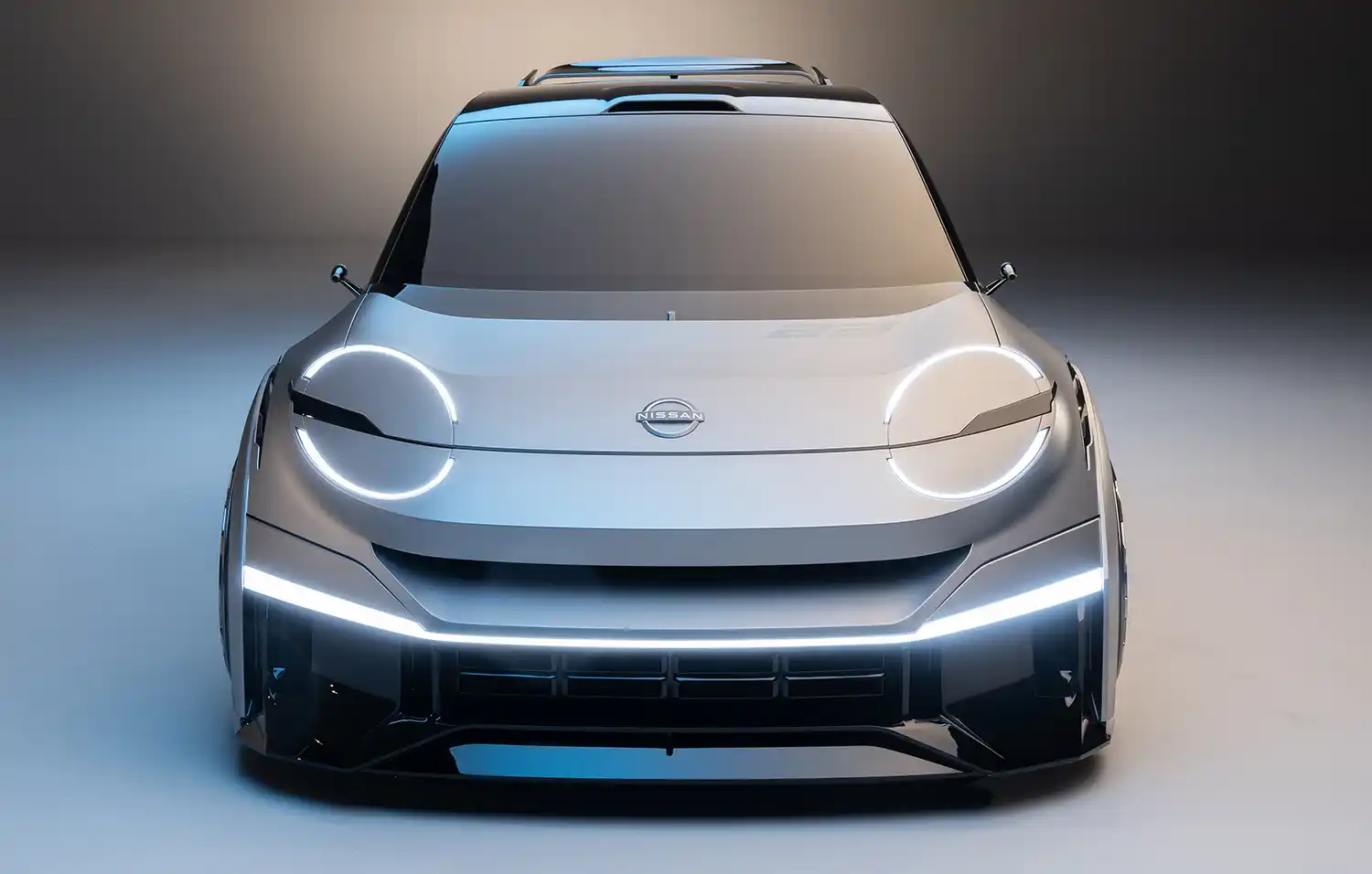
The steering column is supported by a carbon-fibre mount which is itself bolted into position from the base of the large, open aperture which makes up the centre console.
Between the two occupants, two metal beams hold the centre console in position and are bolted to the “spine” of the car that appears from the floor. Beneath the two brace bars, a fire extinguisher is mounted.
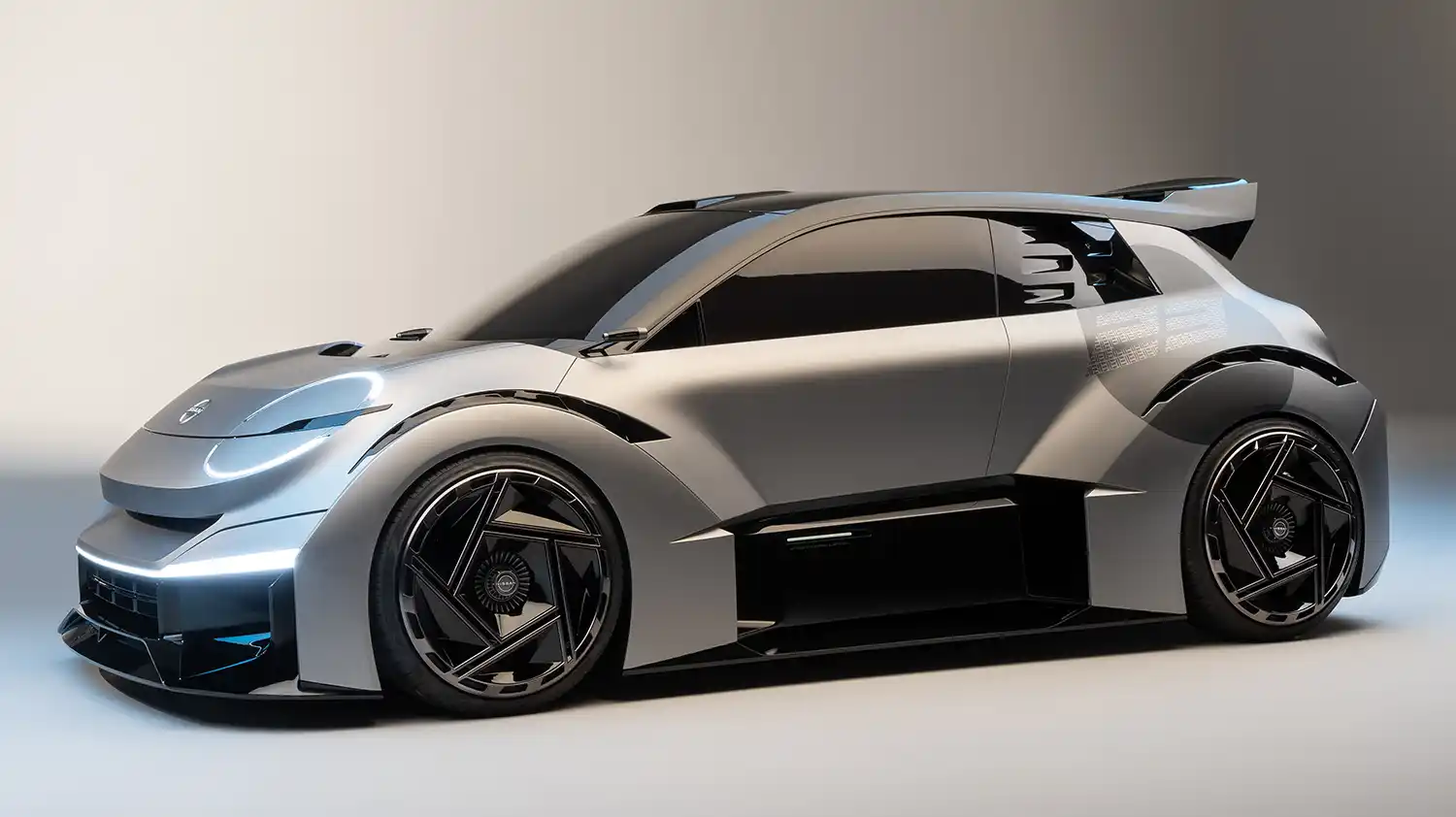
The interior is a futuristic interpretation of a racing car’s bare functionality. with just a couple of screens displaying vital information with minimal distractions – a reflection of where real racing cars – such as Nissan’s Formula E entrant – inspire online racing simulator set-ups.
To summarise Concept 20-23, Alfonso Albaisa said: “It’s a fitting celebration of 20 years of NDE where bold ideas have taken shape and come to life!”
